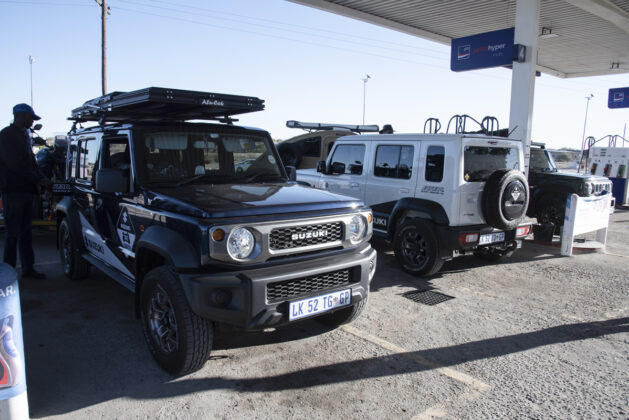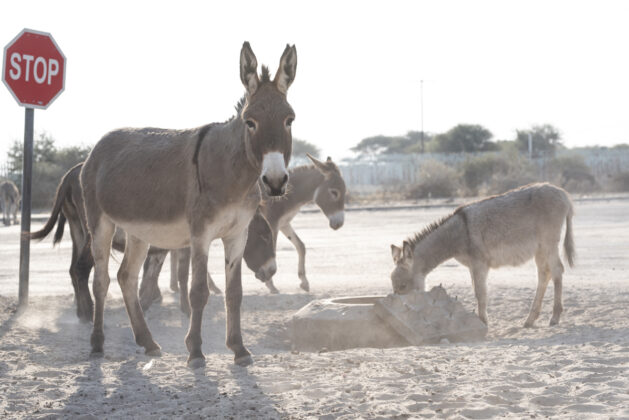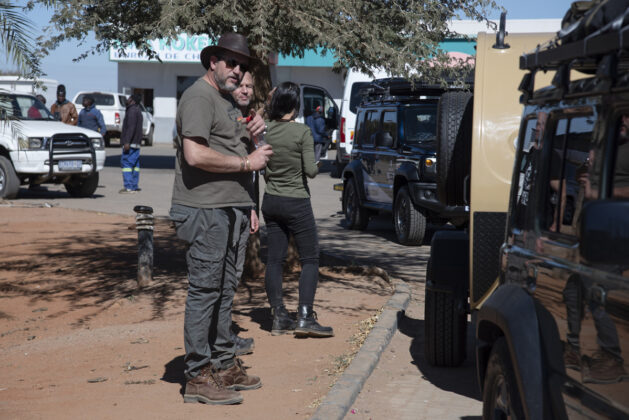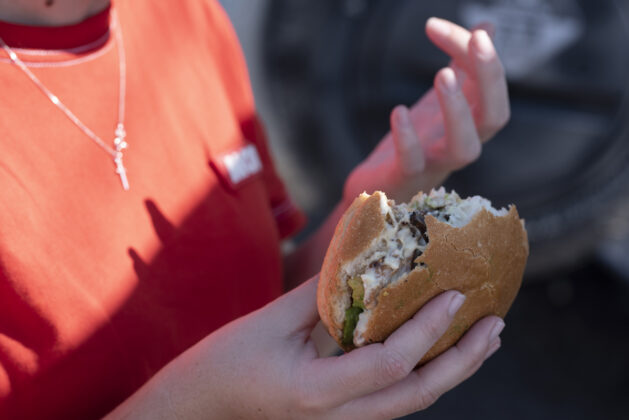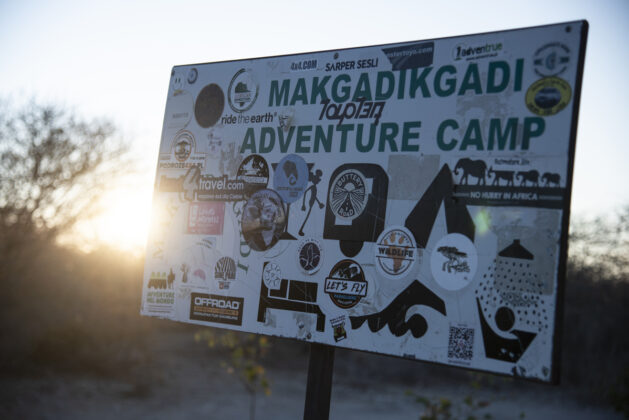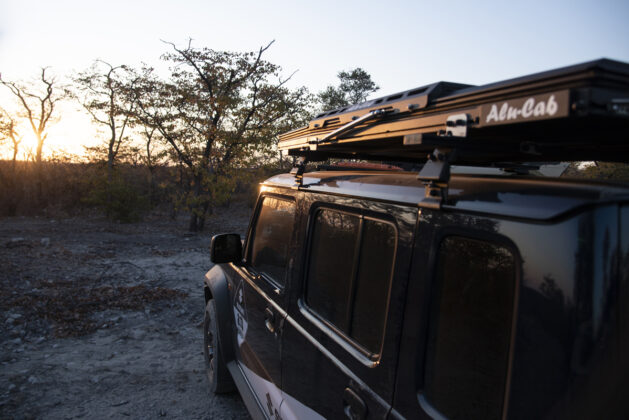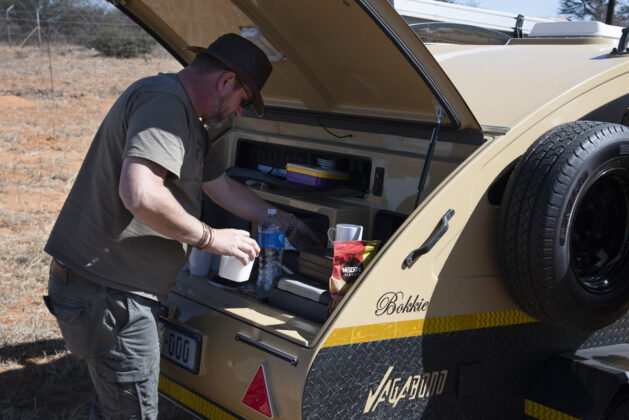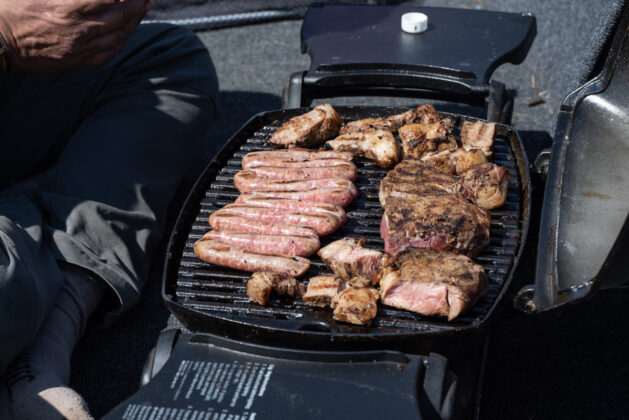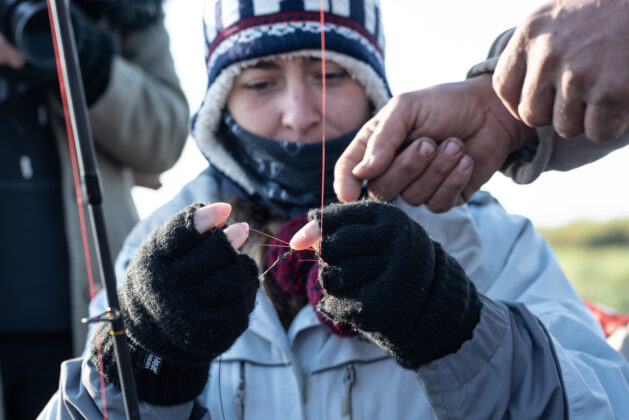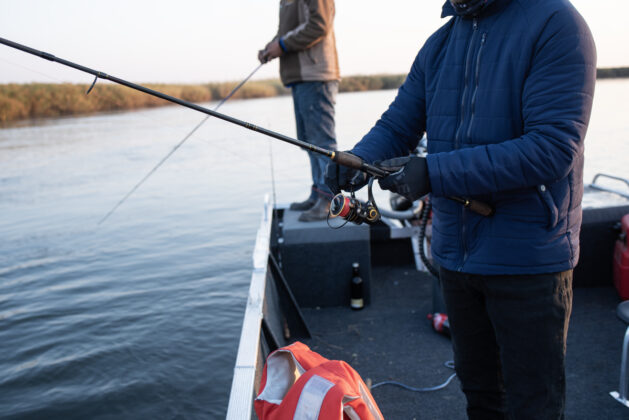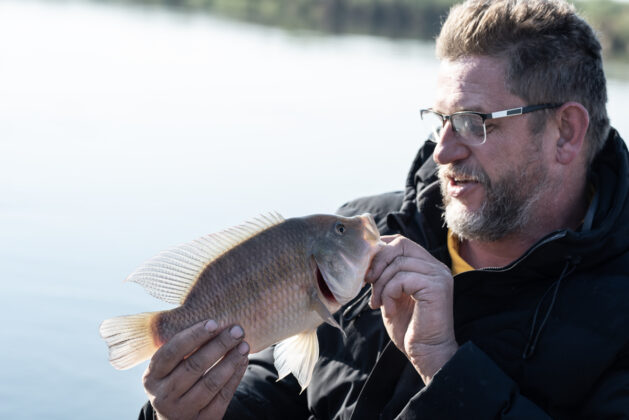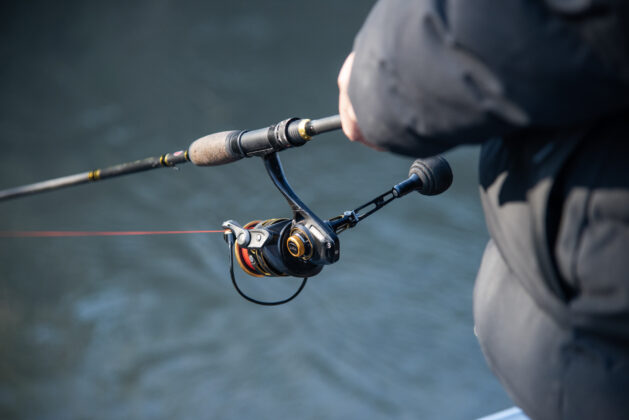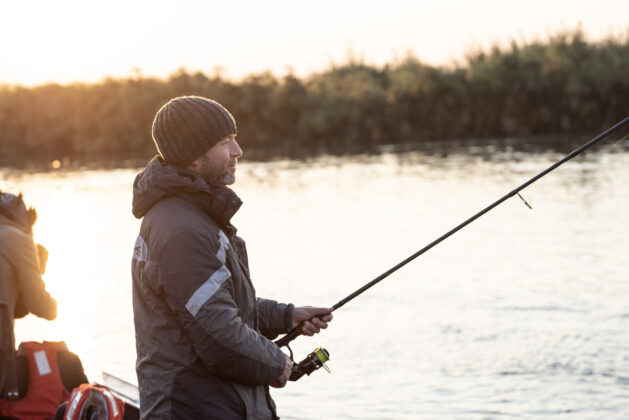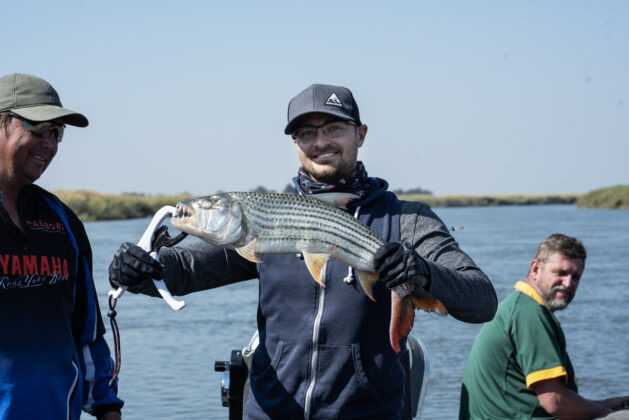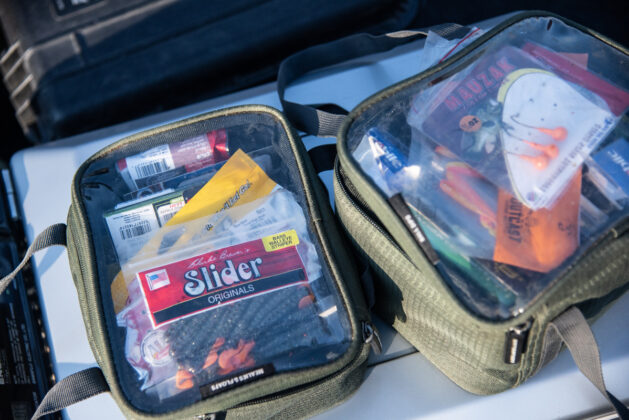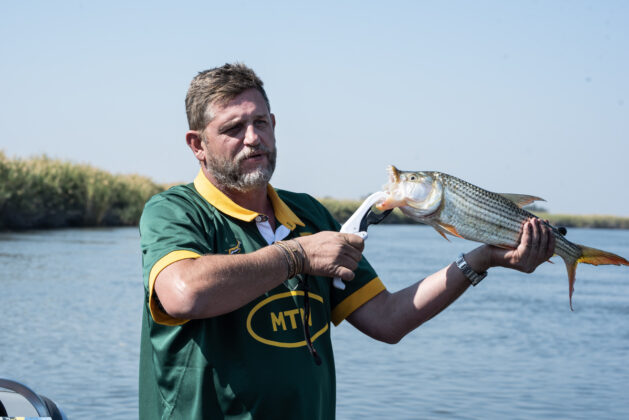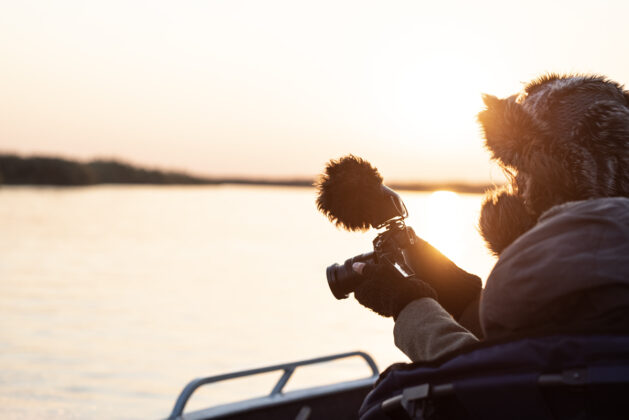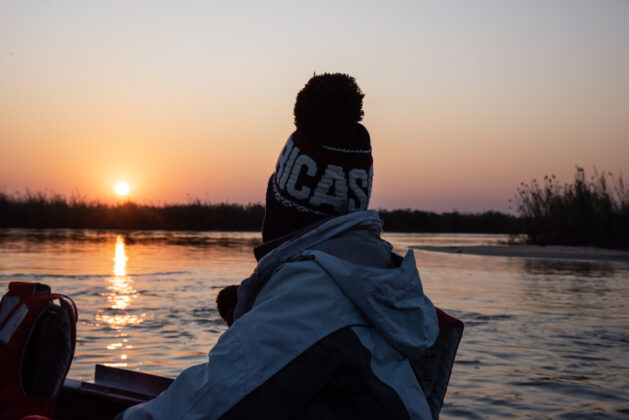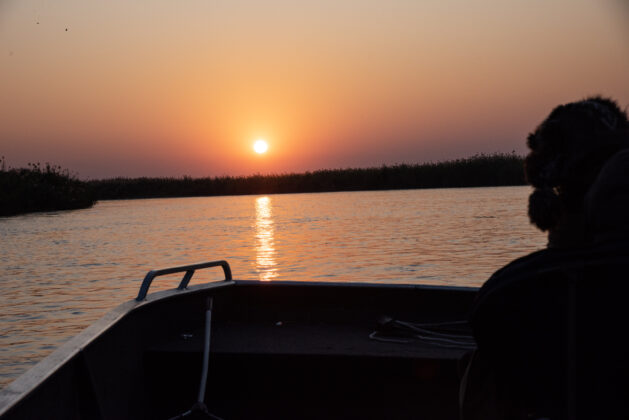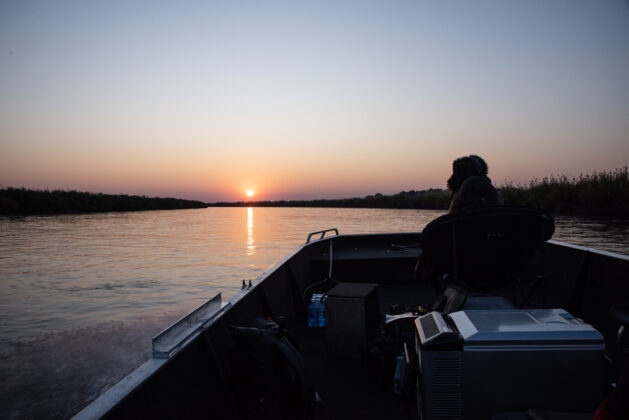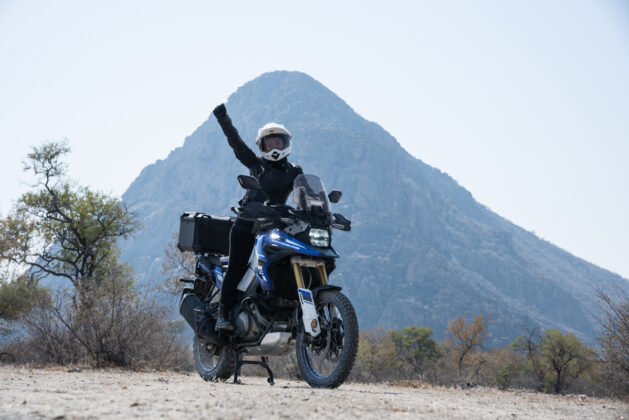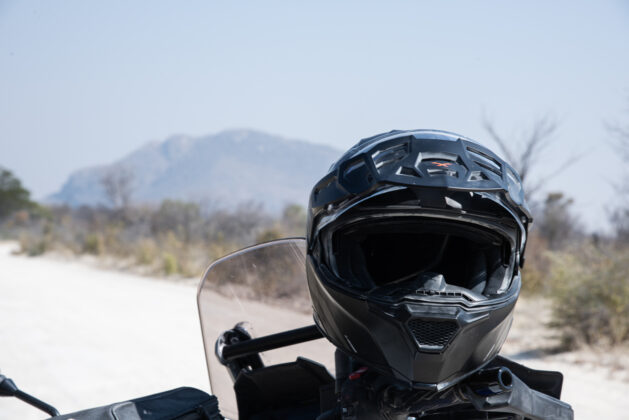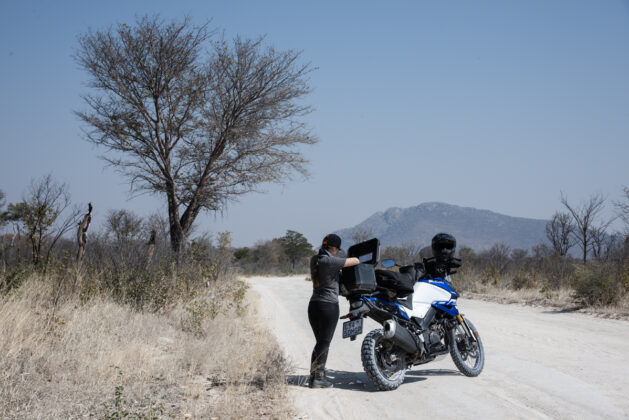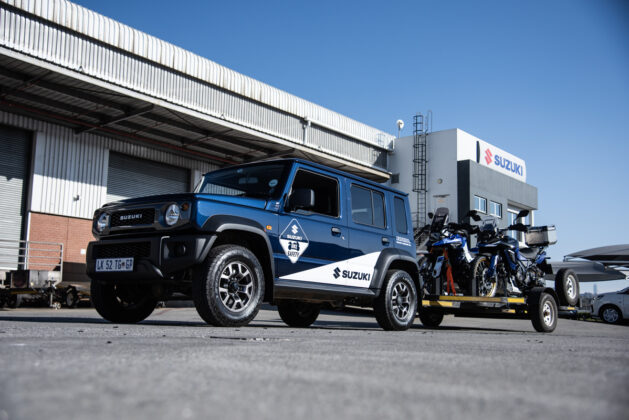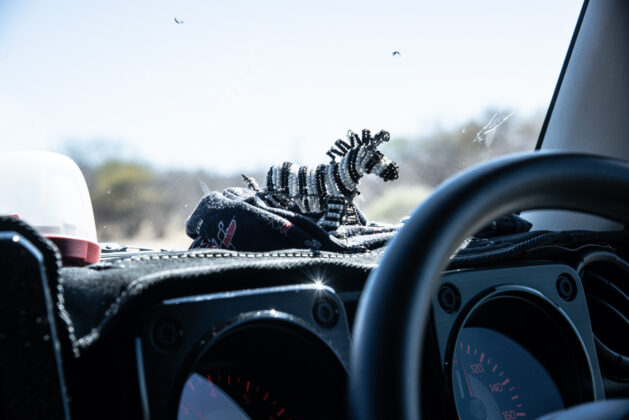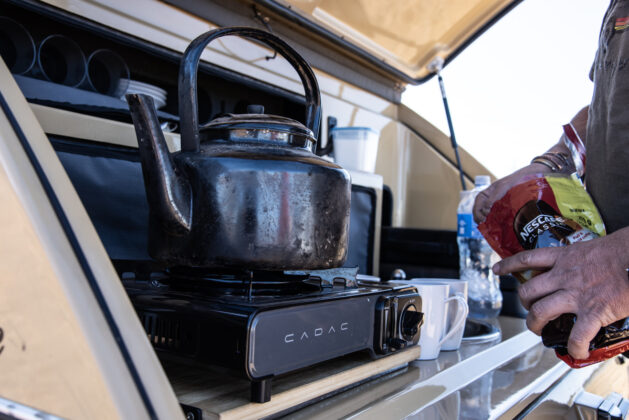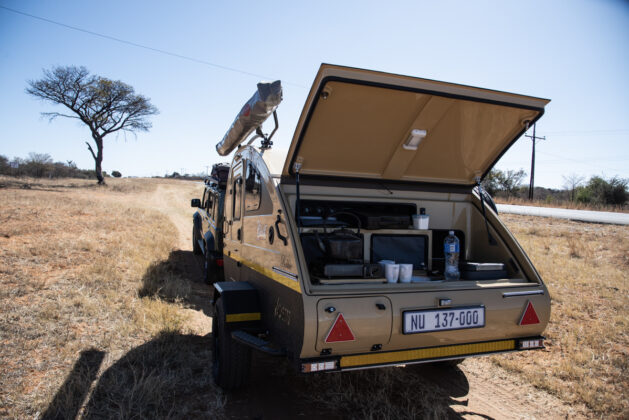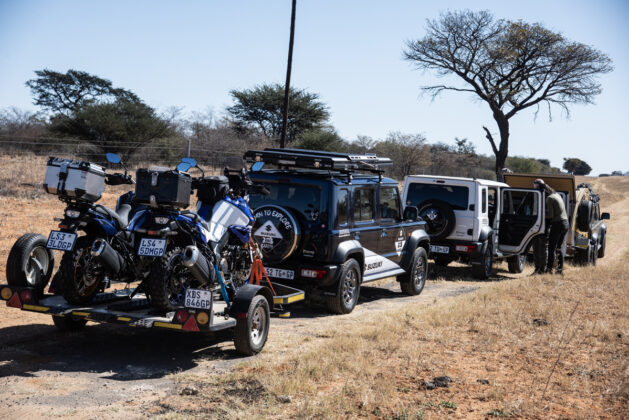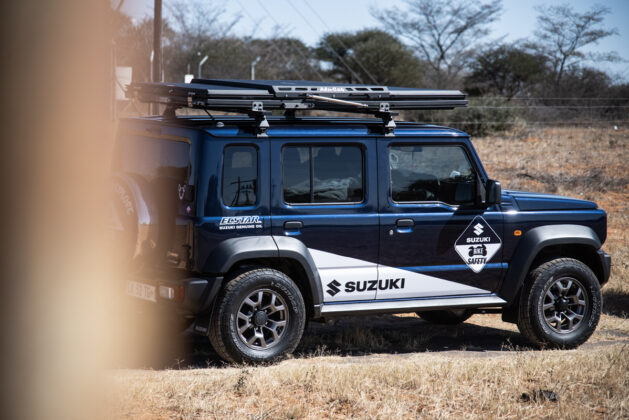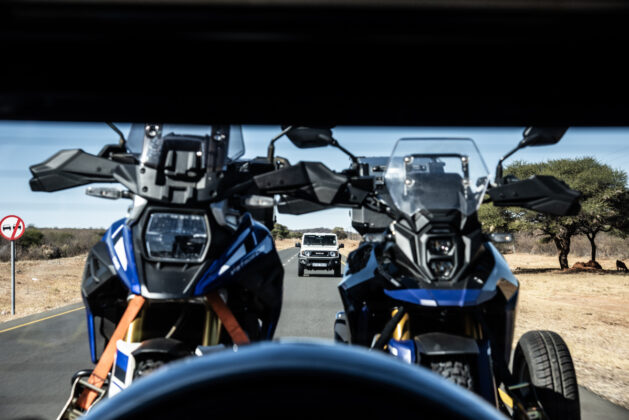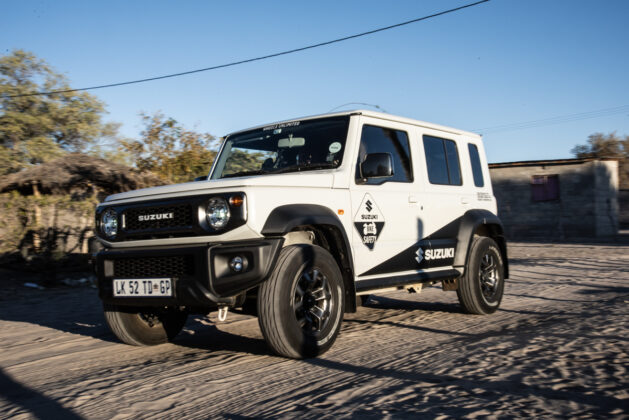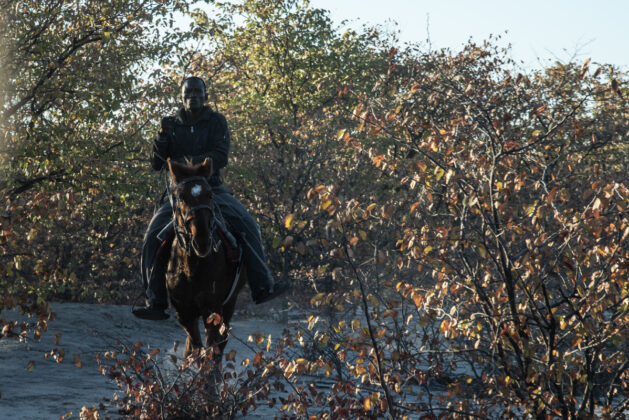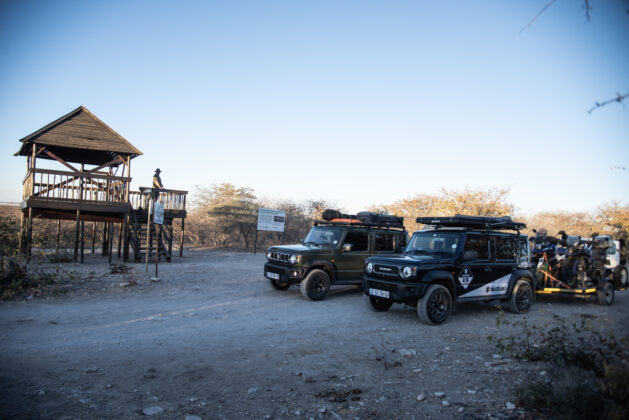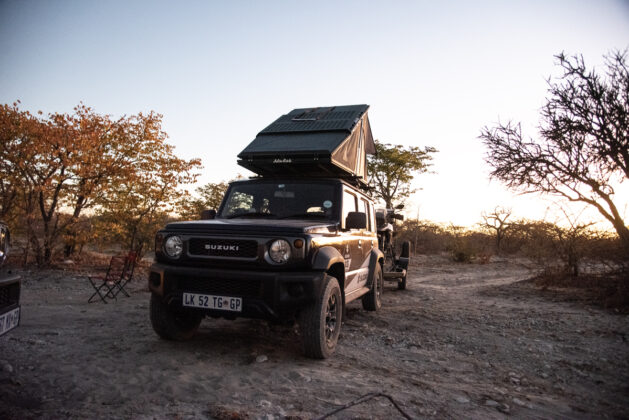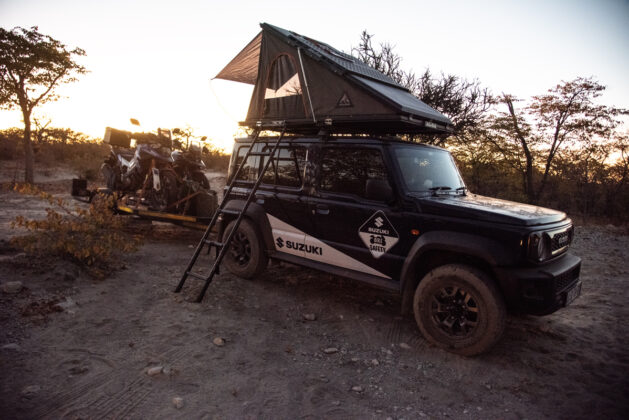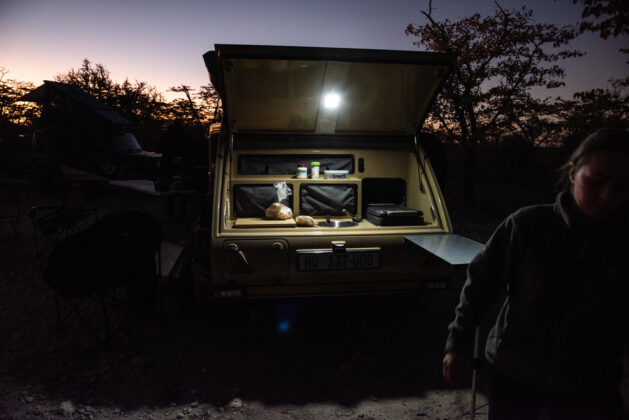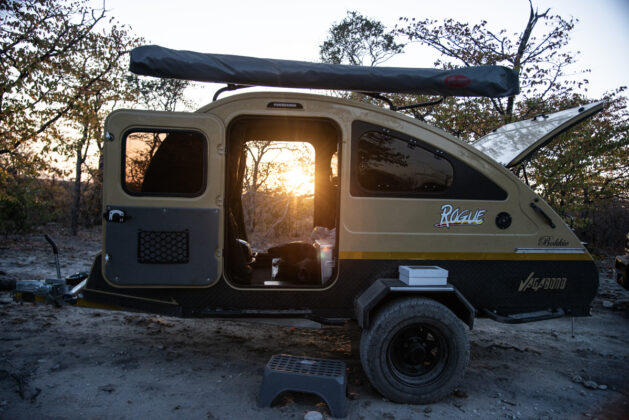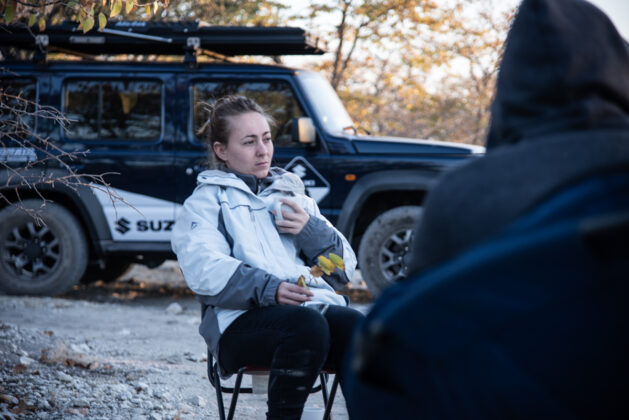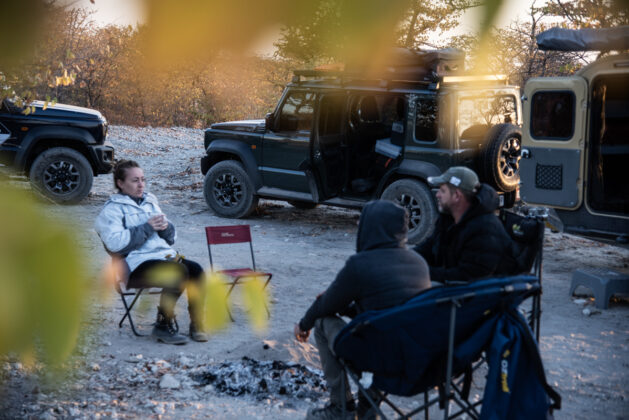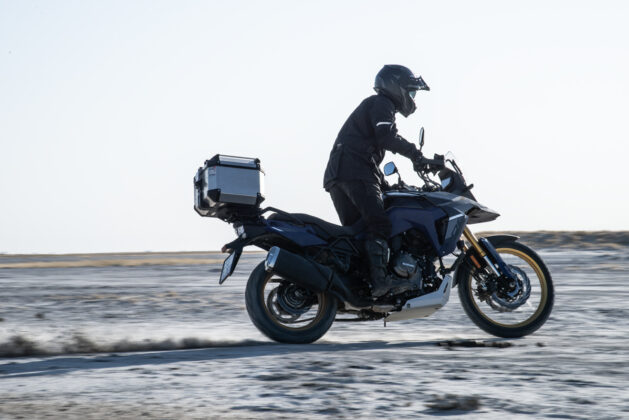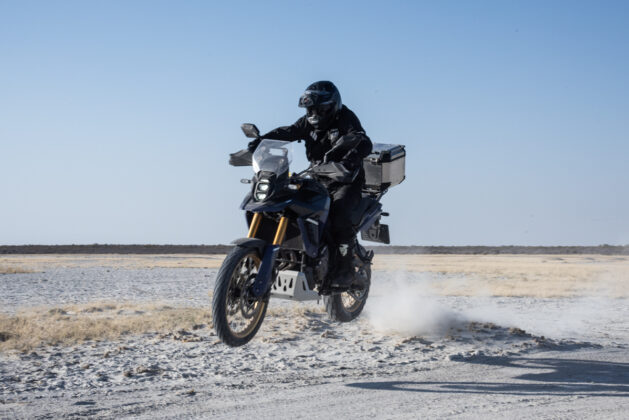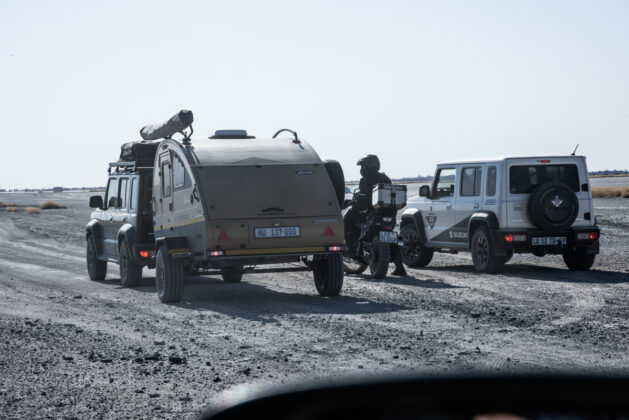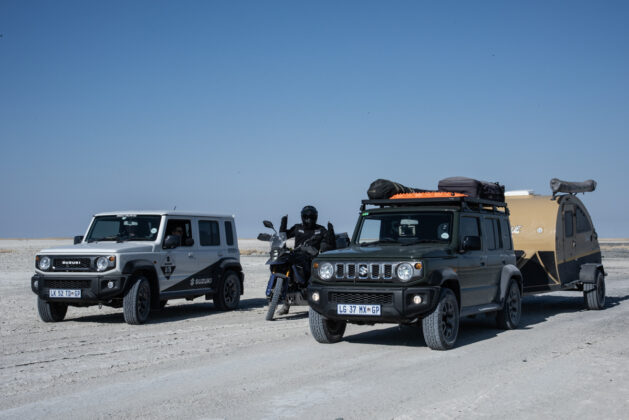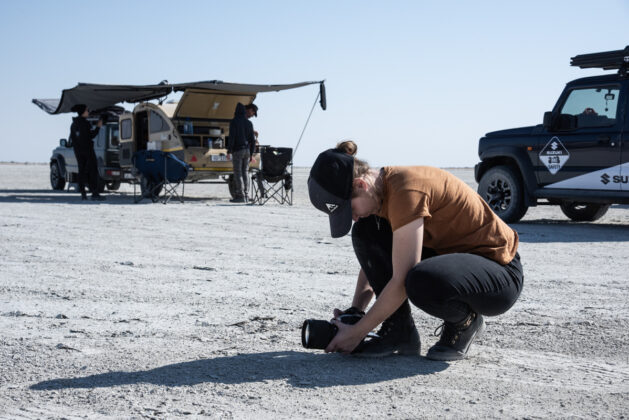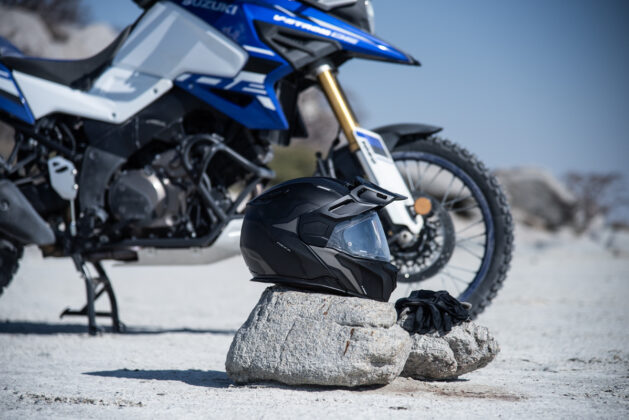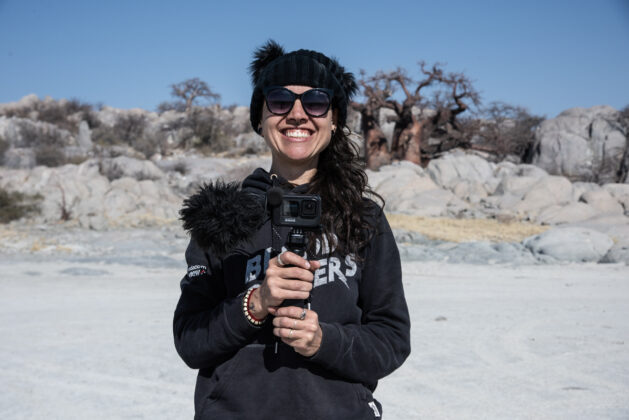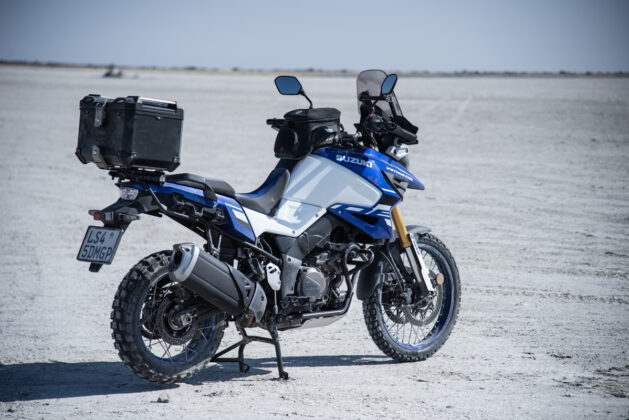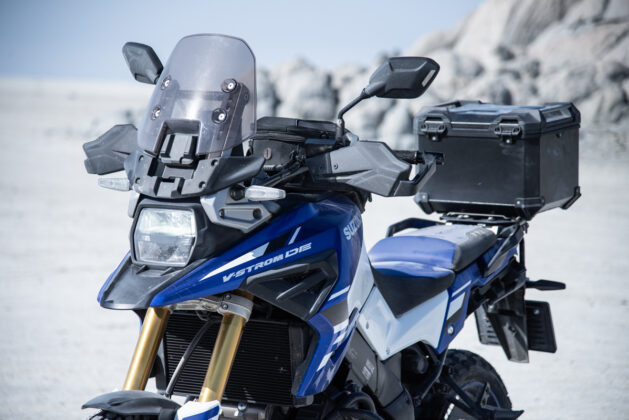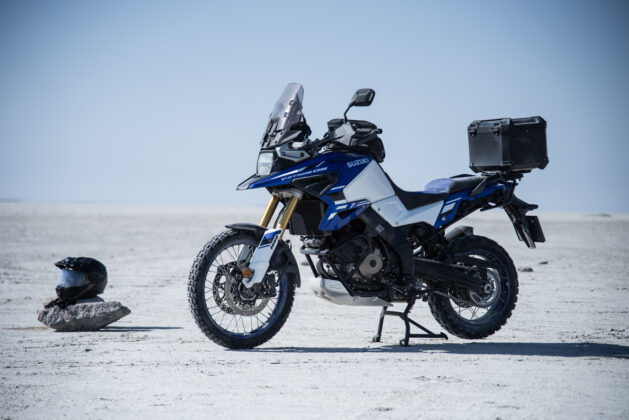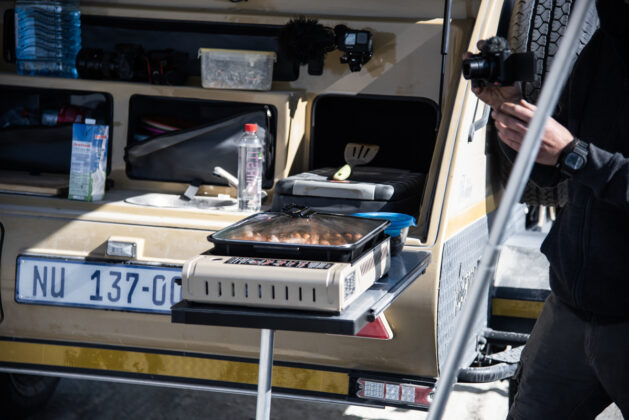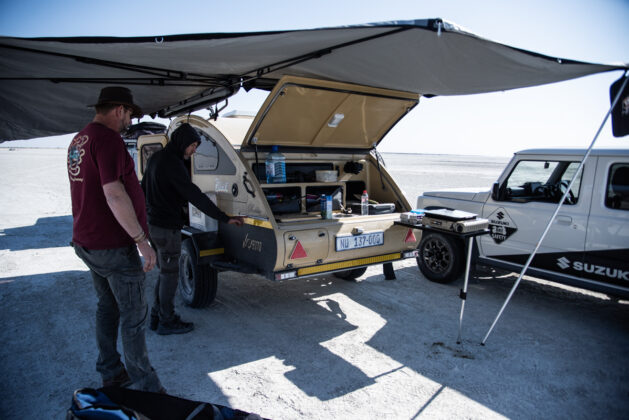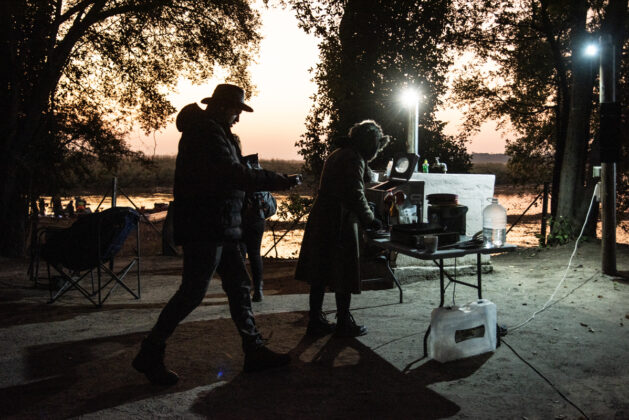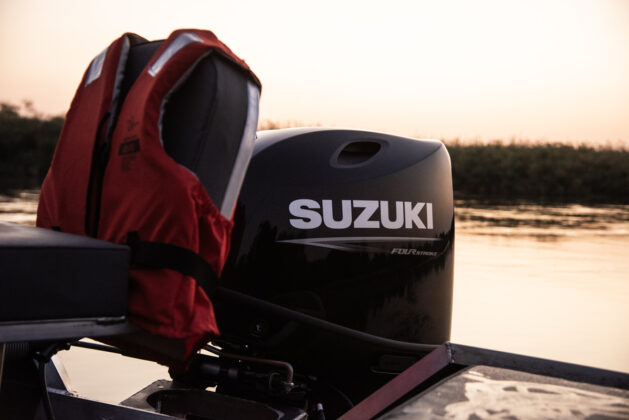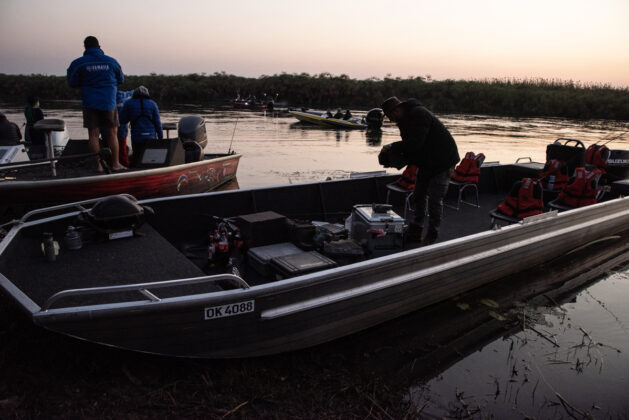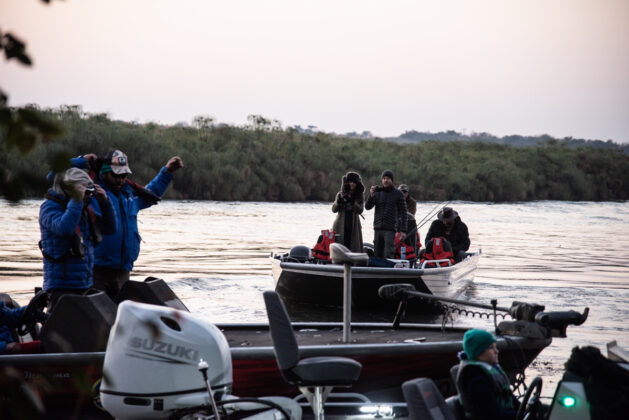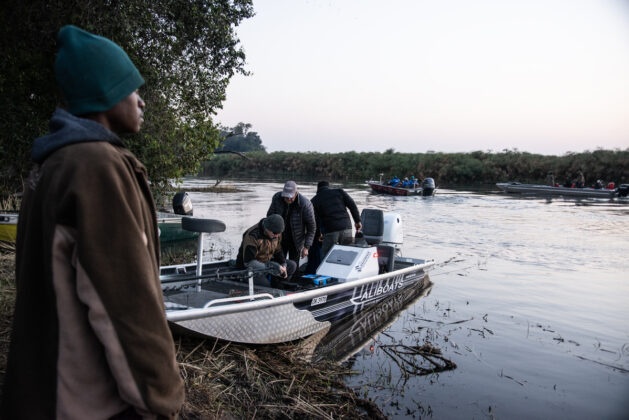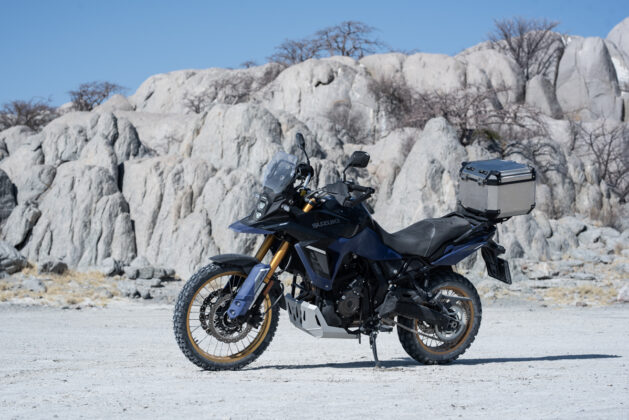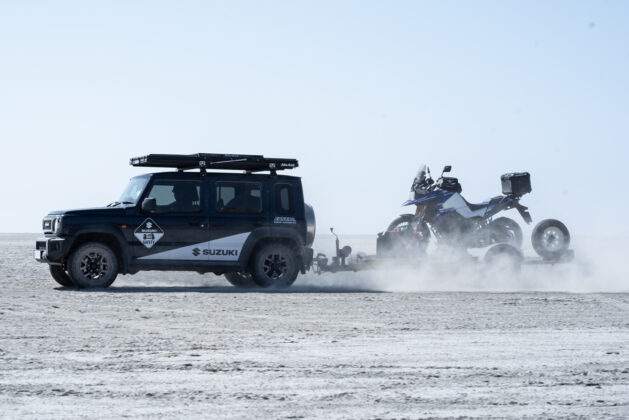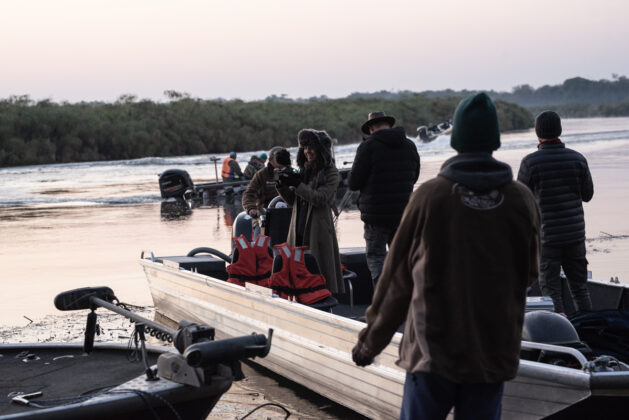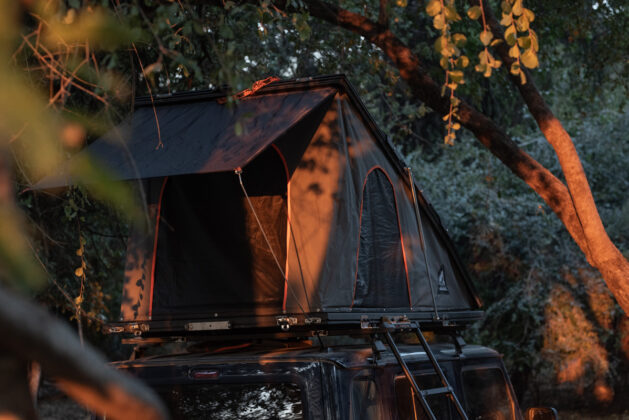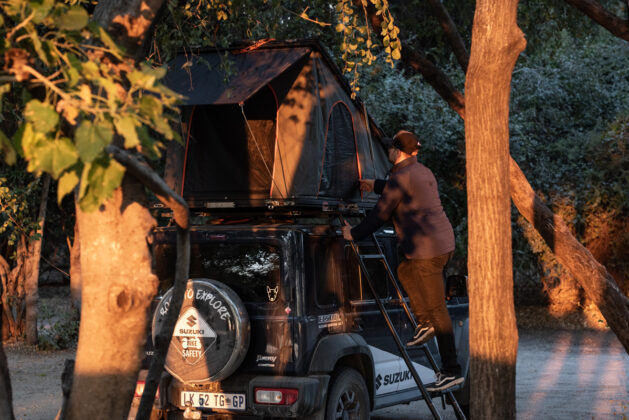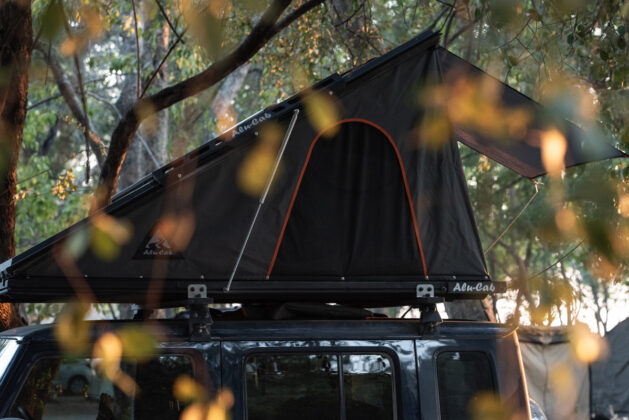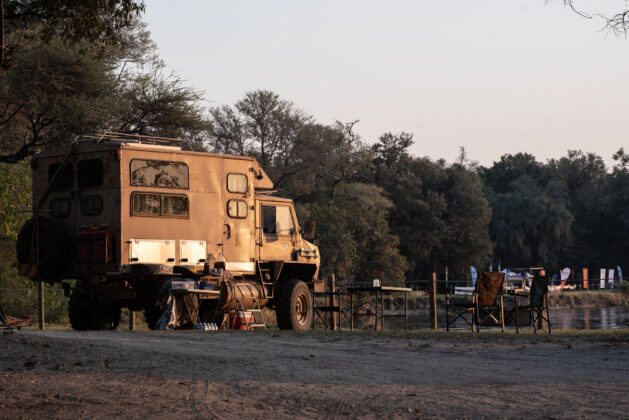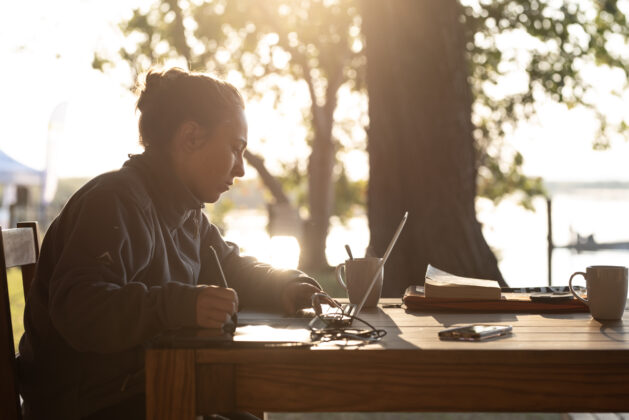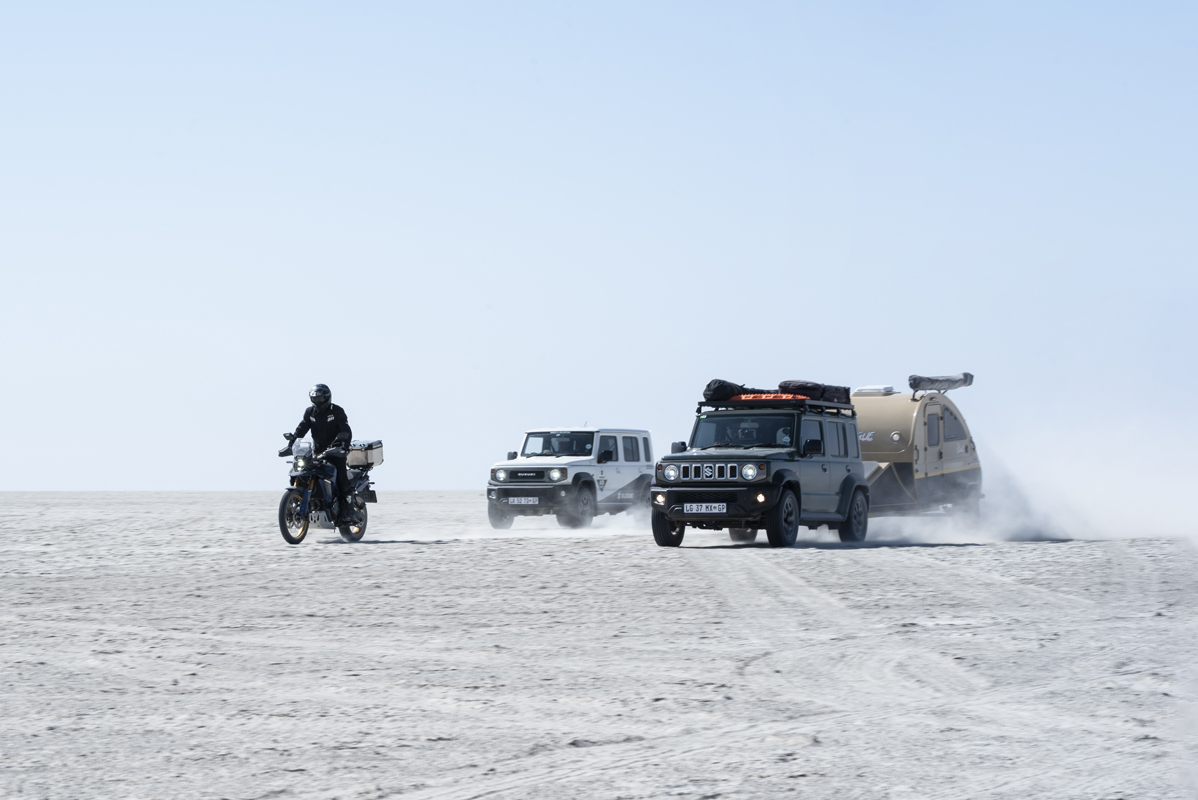
Overlanding has been around for hundreds of years, even before the automobile made its first appearance. Overlanding in more modern times has gone from Alfred Canning opening up the Canning Stock Route in Australia in 1910, to our local pioneer John Weston and his family who travelled with their custom-built “mobile home” from the south-western tip of Africa to Cairo and on to Britain in the 1920s. The Camel Trophy event was also a game-changer. It ran from 1980 to 2000, with routes crossing some intensely difficult terrain, which has gotten many off-road enthusiasts interested in this form of travel.
In a nutshell, there are so many ways of cutting the overlanding pie and choosing your off-road intensity flavour. You can go the bakkie route, SUV, caravan, mobile home or kombi, the options all depend on you and your end destination. Evolution aside, overlanding is about four things and if your preferred method provides it, then you’ve nailed it:
- True Adventure
- Escape
- Hidden Treasure
- Accomplishment
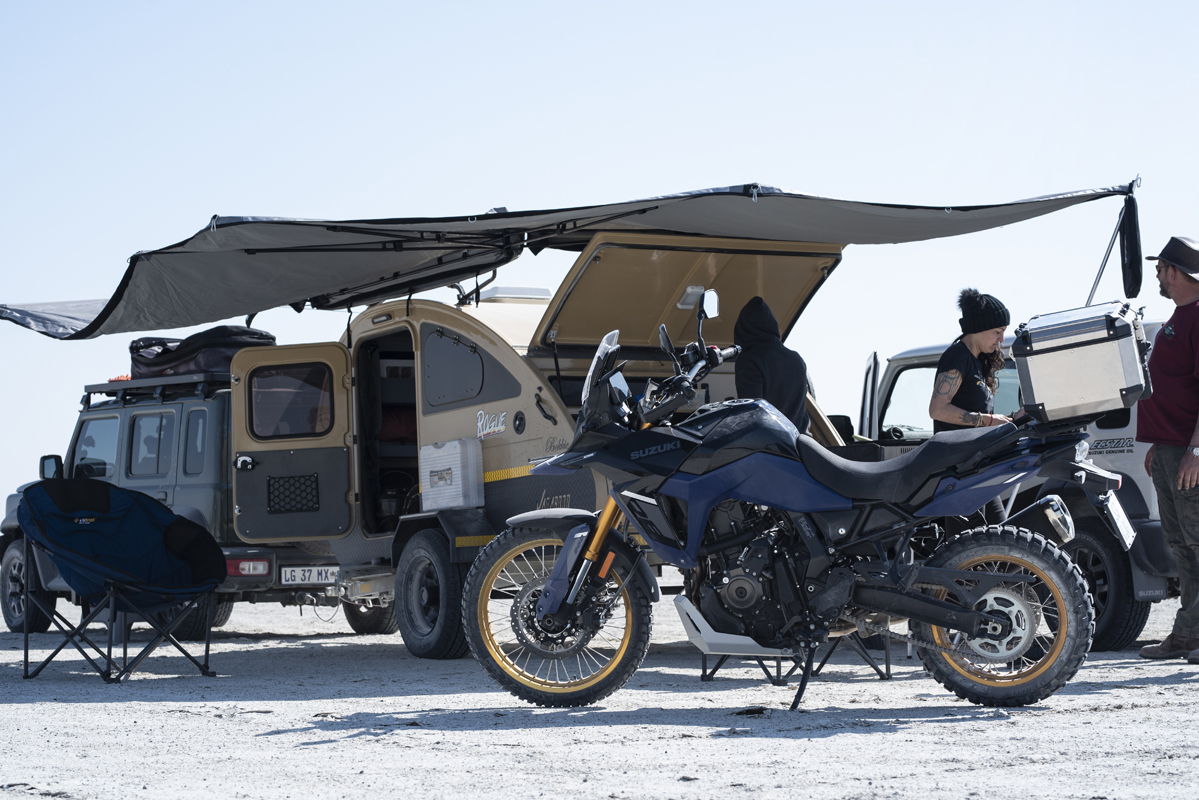
On a normal weekday afternoon, I got a phone call from Kyle Lawrenson from Suzuki Auto South Africa: “Hey bud, I’ve got an interesting trip and project that I think you’d be keen on doing. Suzuki Auto South Africa is sending three Jimnys on an Overlanding trip through Botswana to create some cool travel content with 4×4 Afrika up to the Shakawe River Lodge for the Bream Classic. You and Meredith will be driving our demo 5-door manual Jimny with a motorcycle trailer and two of our Suzuki Stroms. It’s an eight-day round trip, where there will be wild camping and some technical riding and driving. So, are you in?”
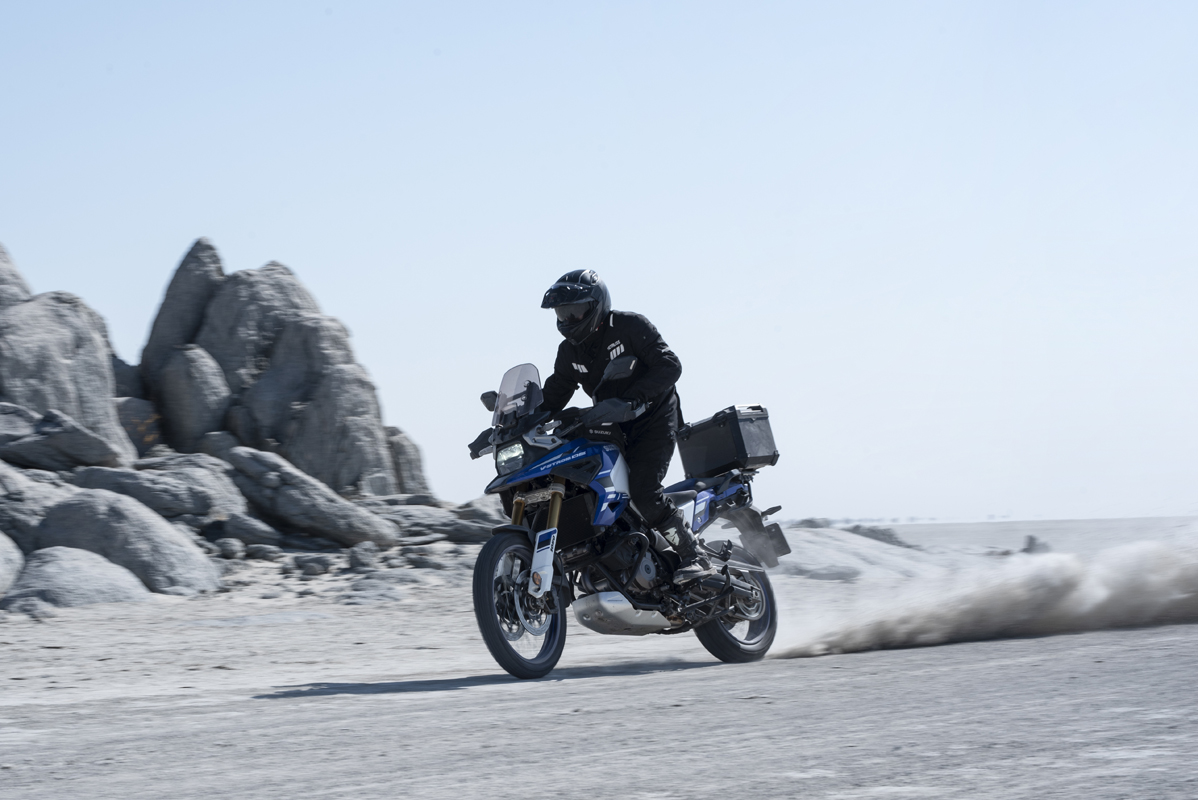
I read an article not too long before the trip invite and it was about “leaping into the unknown”. The way most of us humans are wired up is to act by instinct and our instincts are very protective which often makes us come up with excuses not to do or go. However, how the mind of the adventurer thinks is much different, he/she thinks much as a yes man, but with a willingness to explore new possibilities in life, new ways of living, or to try out new activities. My point is, that we may push experiences or trips aside for a while, we may pretend it is not there or deny its existence, but its call, in any of its many forms, keeps returning and in my case, I decided right there and then that the Suzuki Odyssey wasn’t going to be pushed back.
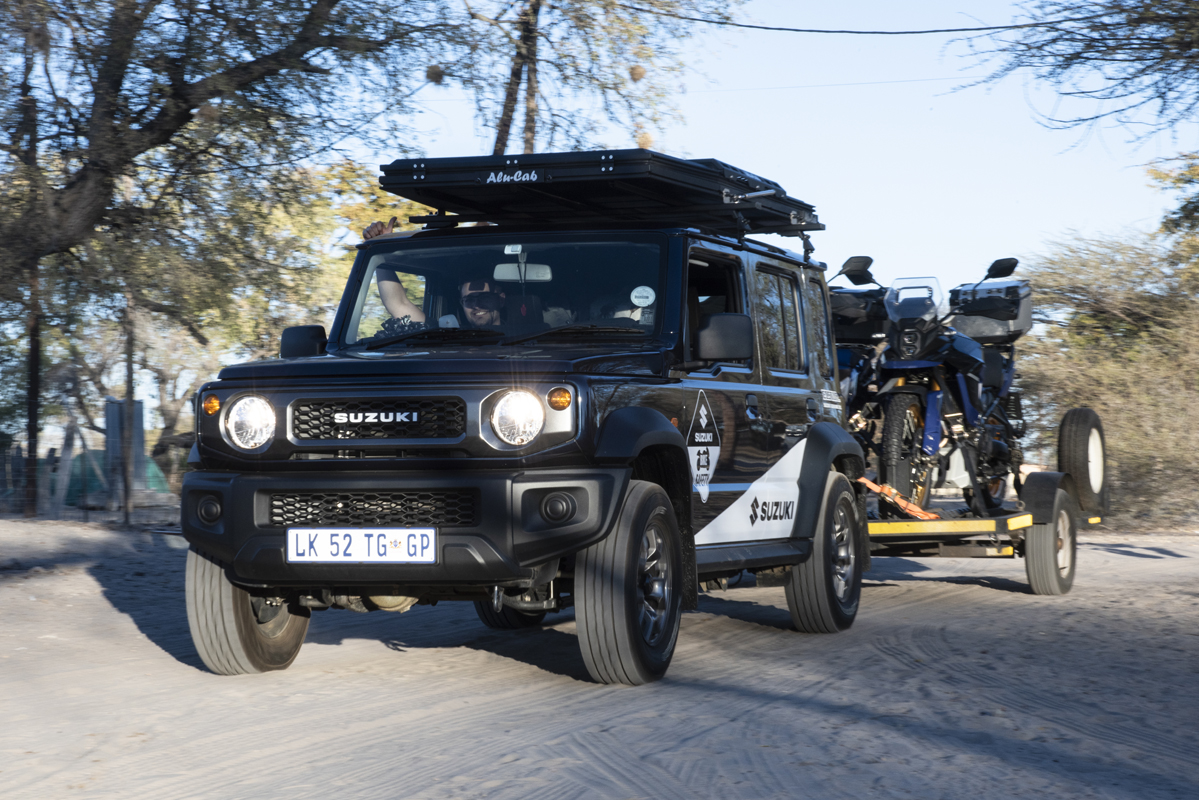
In truth, Kyle got his answer in less than 0.123 milliseconds and the planning and logistics immediately got underway. The only real change that was made was that one of the motorcycle riders wouldn’t be able to make the trip, therefore one of the bikes would always be playing musical chairs or ramps with the other—as I was the only other motorcycle rider on this trip.
There’s no hiding that the ‘ZA’ team love the Suzuki Jimny and what it stands for, almost everyone in our team now owns a Jimny or has had a connection with one. The Swiss Army Knife-like capabilities that the Jimny offers are unmatched in its class and price range, which is one of the many reasons we think the Suzuki Jimny makes for a great entry-level or first-timer micro-overlander.
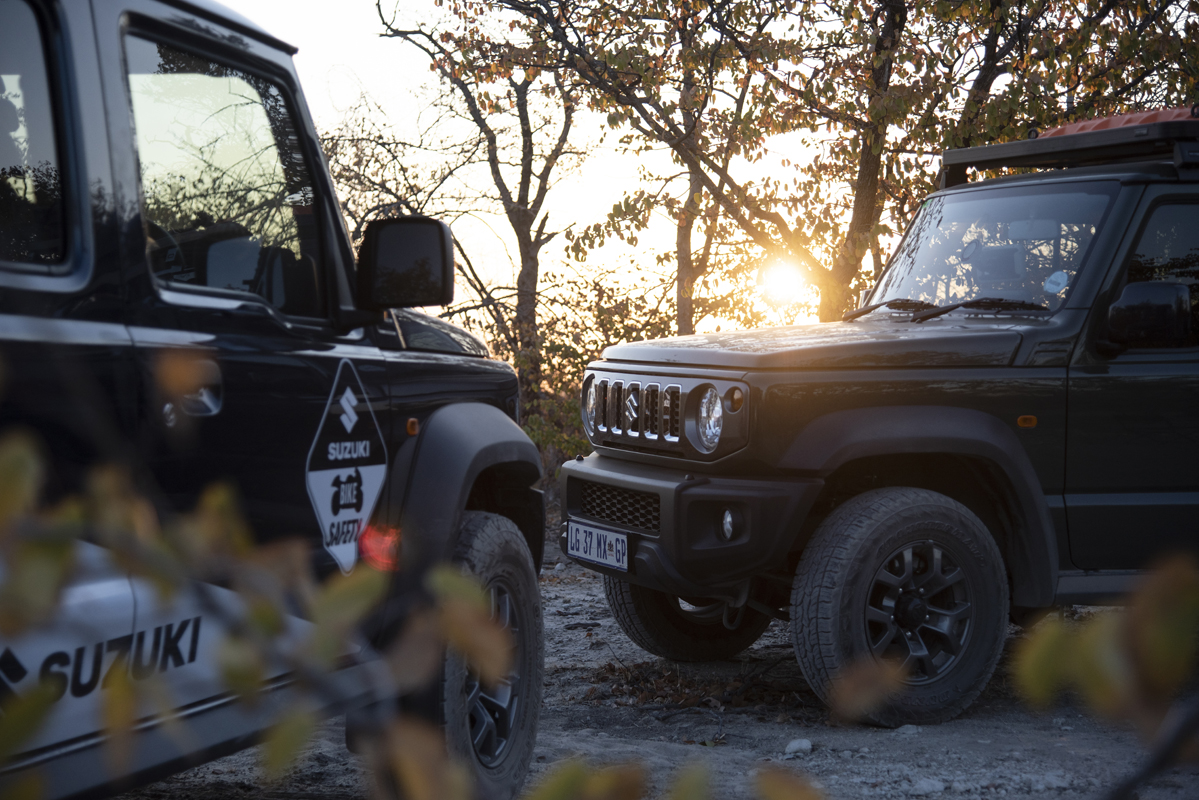
So, to test the theory we jumped into our turn-key bog standard (apart from tyres and roof rack) Jimnys and headed out on the 3,000 km plus trip. As mentioned, our Jimny would be trailering two of Suzuki’s two-wheeled steeds, sleeping arrangements would be taken care of by the LT-50 Alu-Cab rooftop tent and packing space, well we just folded down the rear passenger seats and popped all our camera equipment and luggage in the boot and on top of the folded seats we had all the rest. It doesn’t get much simpler than that.
Anton the guy behind 4X4 Afrika and the brainchild of this “odyssey” was driving an auto jungle green 5-door Jimny, kitted with Front Runner accessories and towing ‘The Rogue Teardrop Caravan’, built by Vagabond SA. Similar to our setup, Anton wouldn’t need to do much setting up camp, flip, I doubt he even needed to make his bed. The Rogue Teardrop Caravan would also serve as our mobile kitchen as it was fully set up with electrical points, kitchenware and a fridge. All this extra mass would weigh pretty much the same as our two-motorcycle setup at 750 kg (dry).
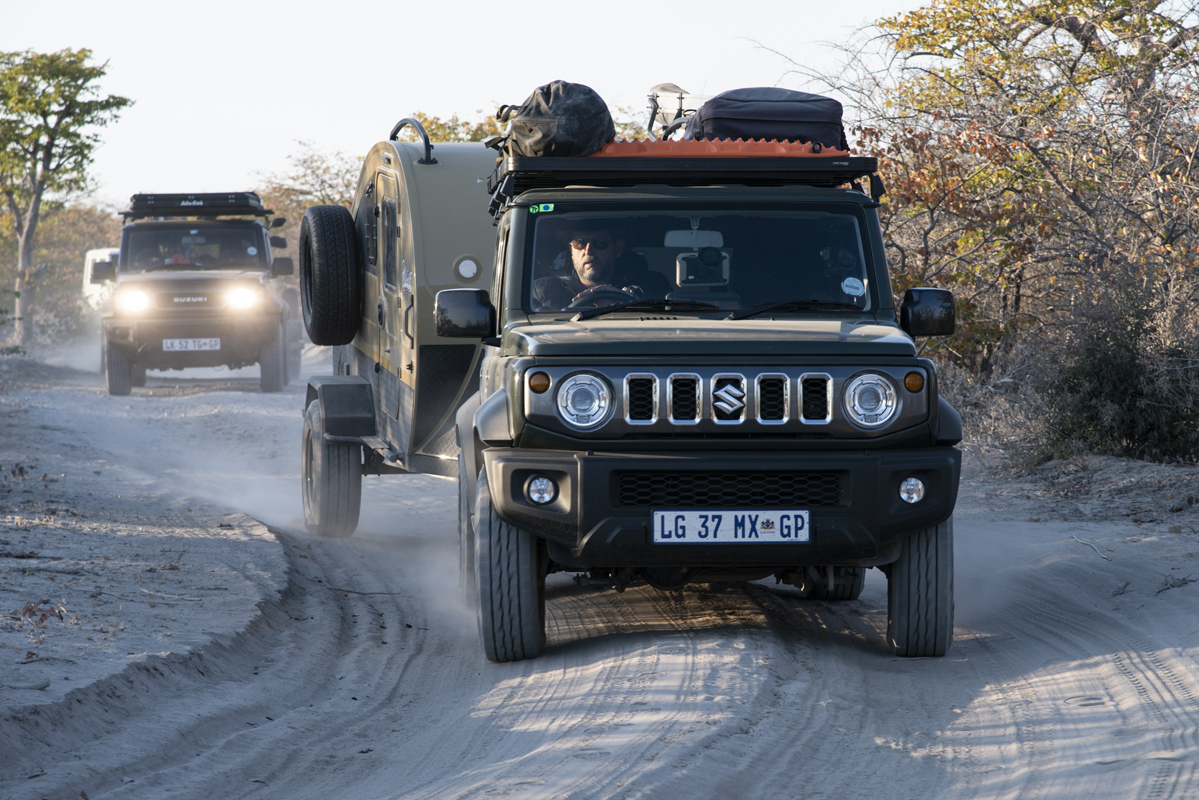
Riaan and Alti, good friends of Anton (and the camera crew) were in a manual 5-door Jimny. Packing was much the same as mine and Meredith’s, like a teenager’s room, but unlike the two big rigs, their Jimny would be cruising without any additional wheels dragging behind and without any rooftop drag—they would set up camp the traditional way.
Finding true adventure was exactly what we set out to find in the opening days of travel. On the wide and open stints, the Jimnys sat surprisingly comfortably at 110 km/h with the revs just peaking over 3,000 rpm. Yes, when we started to hit the winding roads from Vaalwater to Lephalale, 4th gear and occasionally 3rd was a must. Otherwise, from the point of entrance into Botswana at Martins Drift, the Jimnys were unlaboured on the tared and straight as an old Afrikaans army sergeants road—5th gear in the manual and 4th in the auto.
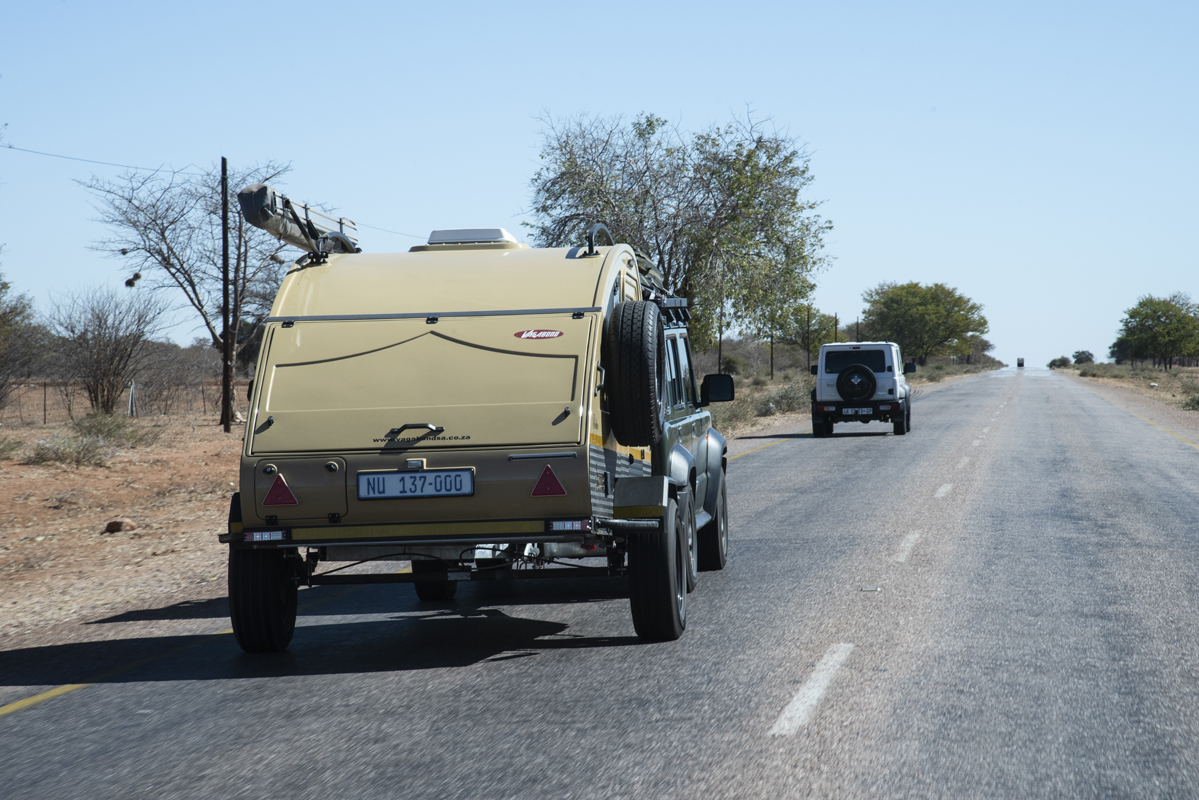
Just for the nerds: Our Jimny was using 11L/100km, Riaan was getting just under 7L/100km and Anton was using around 16L/100km with his fully loaded roof rack and trailer.
True adventure is the great unknown and everything that comes with it, from the sandwiches and coffees on our roadside stopovers to the banter and History lessons given by Anton over the three-way radios. Sometimes adventure is the journey to the location and in mine and Meredith’s case being newbies to overlanding and its challenges, this was ‘definitely’ ticking the adventure box already.
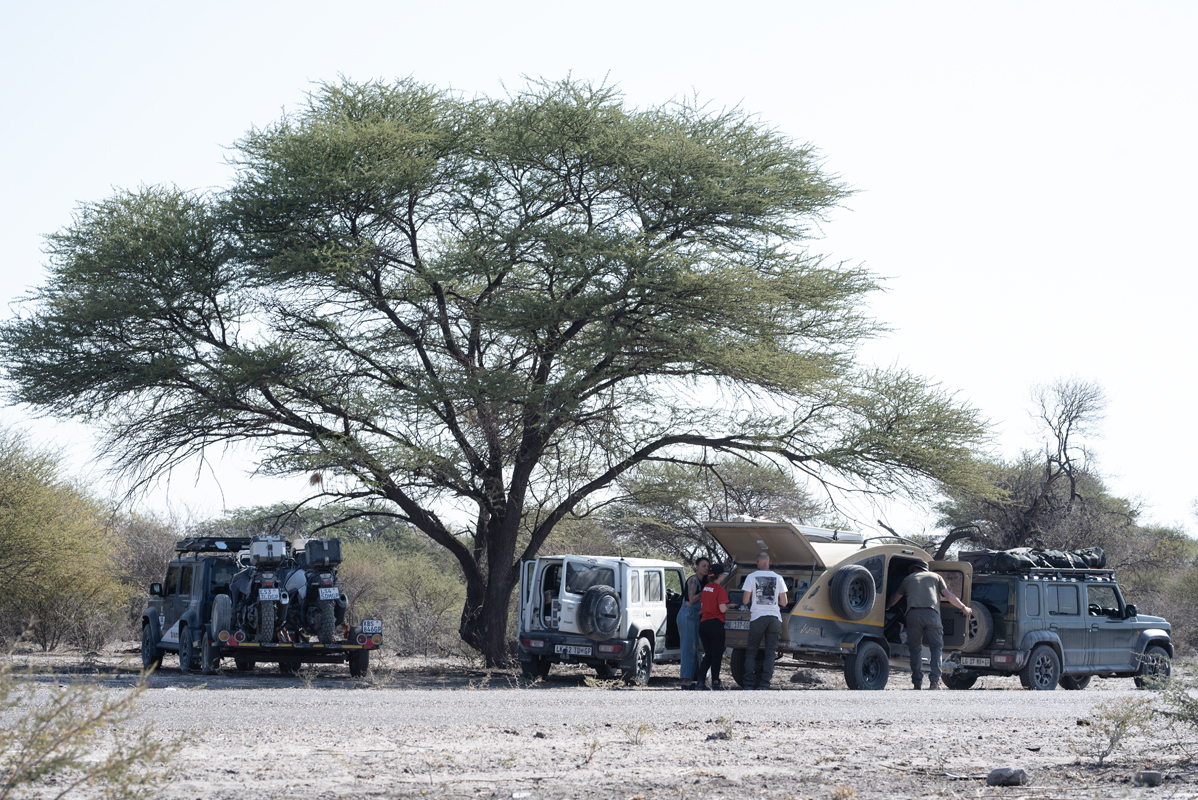
Our first night of wild camping saw us park like Voortrekkers on one of the main trails leading onto the Makgadikgadi Pan. Golden hour met the clinking” of glasses as we sipped down the good stuff after a long 800 km day. Anton took to a traditional tent and let Alti and Riaan use the camper for the night as Meredith and I effortlessly unlatched the clamps of the LT-50 and let the clever clamshell design do the rest.
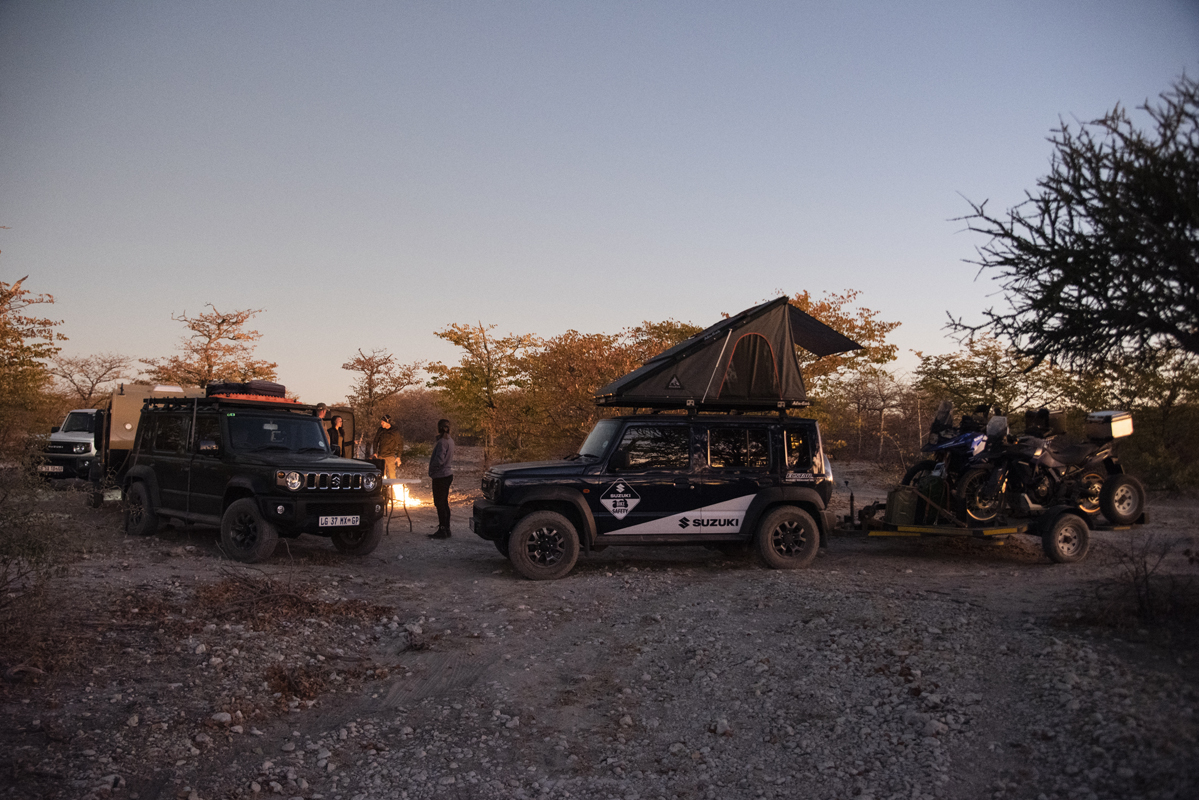
The bush provided plenty of firewood throughout the night and a proper meal was cooked up by Anton and some potatoes courtesy of Alti. If the starry night sky and being so very far away from the everyday routine didn’t tick the escape box already, then I think the next day did exactly that.
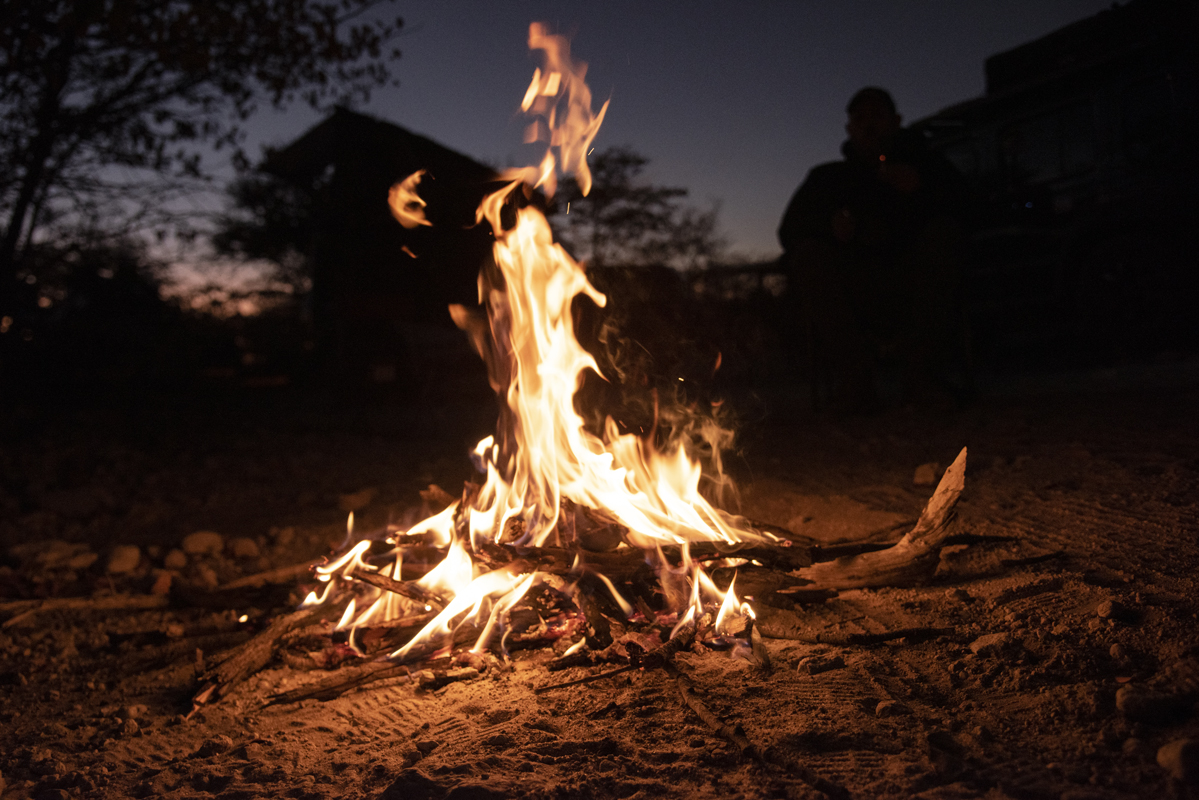
I’ve spent a few occasions on Botswana’s lovely pans and every one of those times, no matter what time of day, in or on what vehicle and no matter the weather, every single time has been special for me. The vastness of how far this clay-crusted flat piece of ground stretches almost to eternity, melting into the milky horizon just makes you feel at peace and also totally out of this world as if you were on another planet. Awesomeness I say!
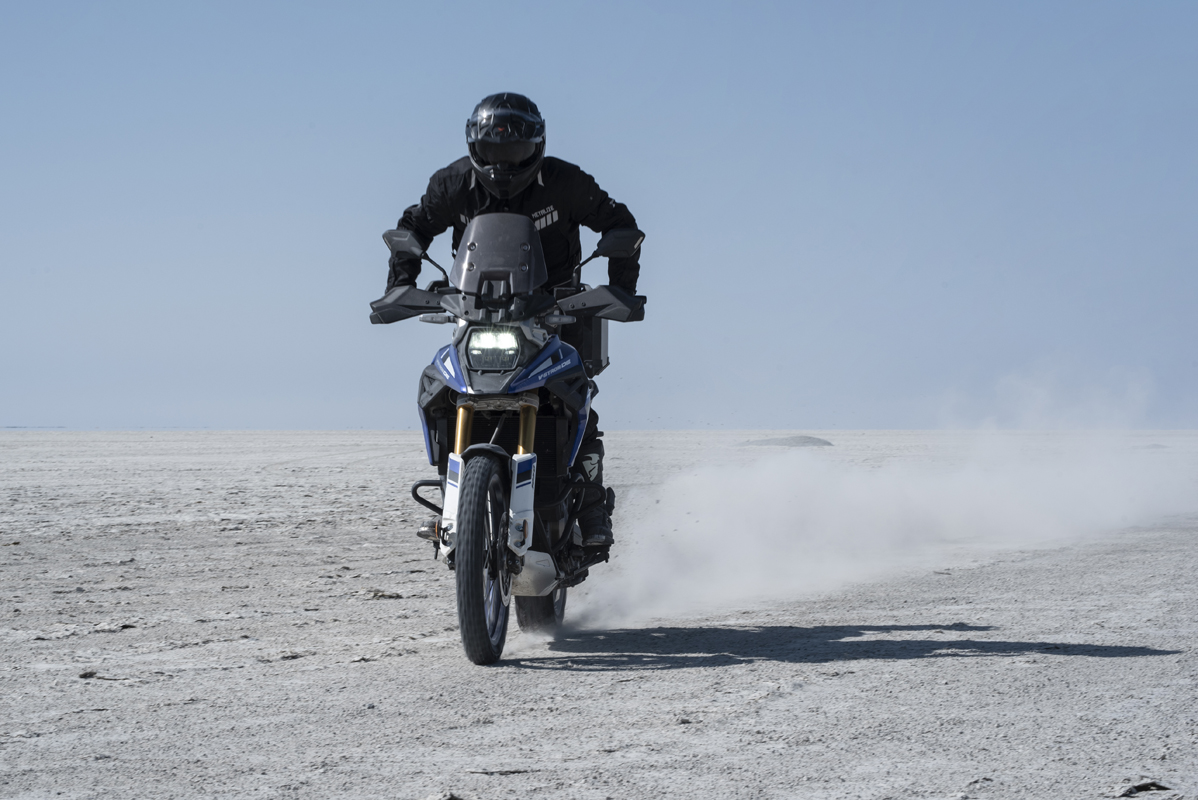
I like to jokingly tell Meredith that this is a prime example of a man’s “nothing box”, that memory box we open when we sip on an ice-cold beer at the end of a long day and not a single thought crosses the mind, just a stare into the distance. “Ahhhh, what a feeling! Nothing is such a great feeling.”
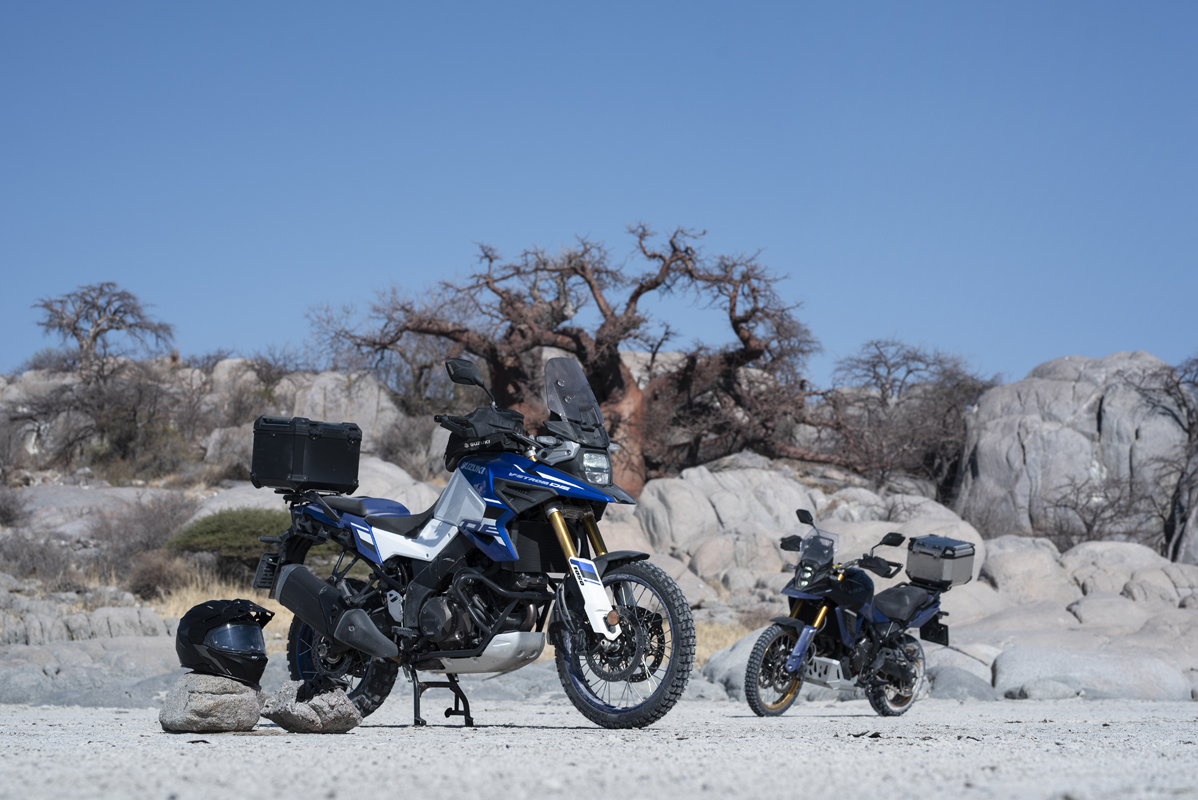
The pan called for some riding, so the motorcycles were offloaded and the rubber kissed the pan while the throttle stayed pinned for what felt like kilometres. The Strom’s silky-smooth rumble and the ever-so-slowly changing landscape, as we approached Kubu Island, was and is a memory that will forever be engraved and yearned to be experienced again. The scenic outcrop of granite in the middle of the endlessly flat Botswanan salt pans, which is Kubu Island, was our hidden treasure on this trip and a magical breakfast spot.
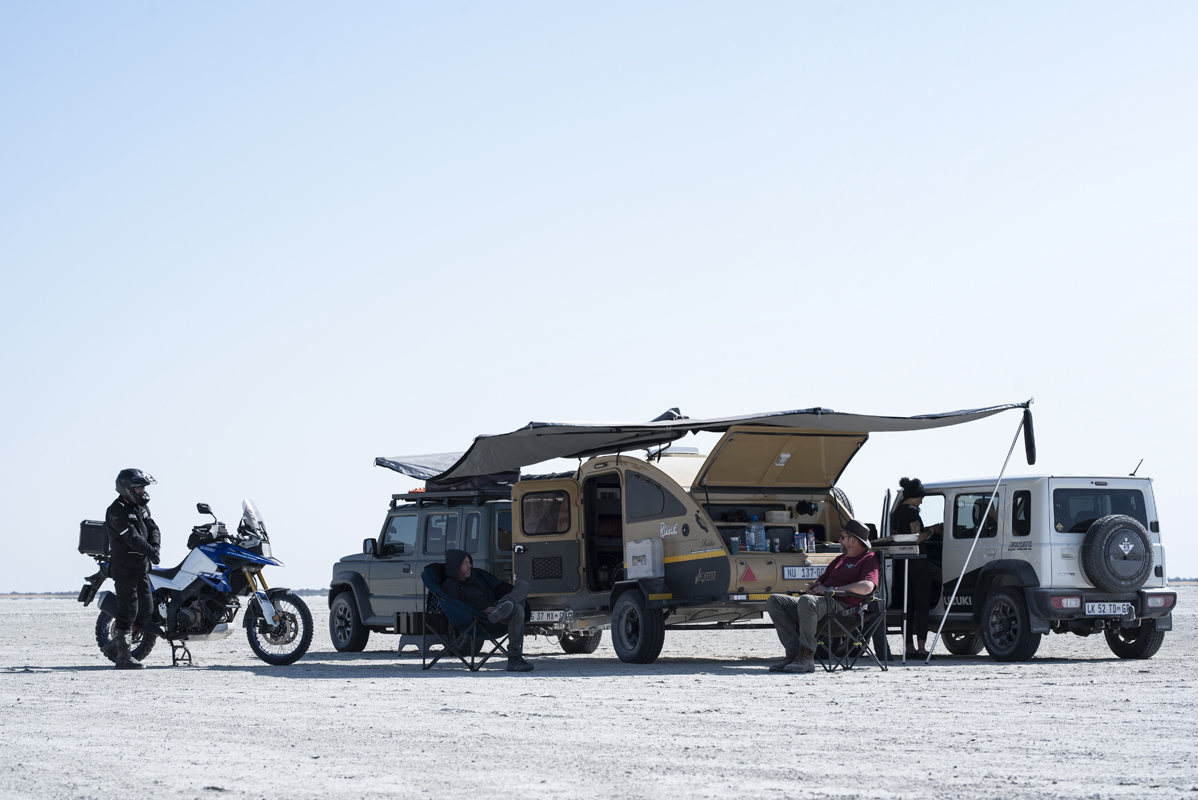
Saying goodbye to Kubu wasn’t easy, I took each bike out and rode right around the Island to say my last farewell and to let the Island know that I’ll be back. The route from Kubu really put the Jimnys and the trailers to the test through some seriously rocky terrain and deep sand, where the occasional low range was engaged.
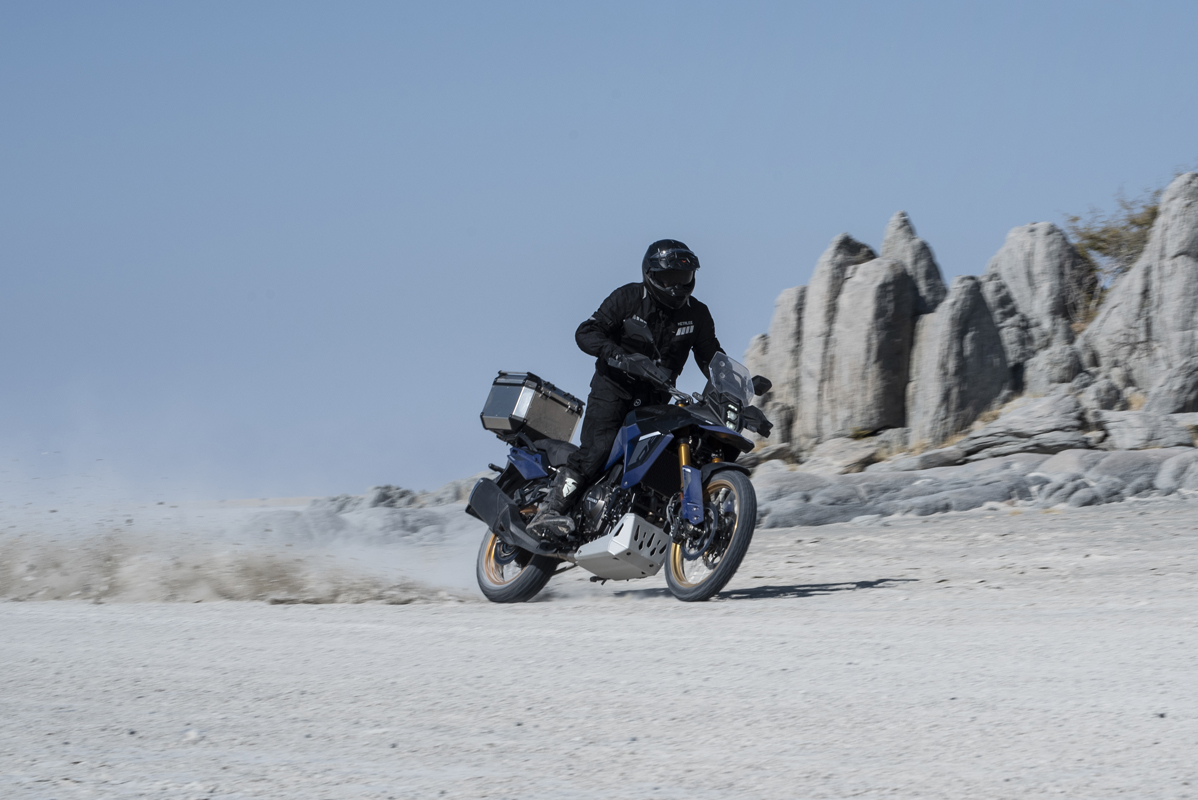
Even on the 800 and 1050 Strom, I had a good workout in the thick sand and dusty fesh-fesh. What was just 350 km to Maun from Kubo took us the whole day, as one motorcycle would always be on the trailer (I was the only rider) and through the rocky sections, it would consistently need to be ratcheted down. This is all part of Overlanding and the unknown, this is also another reason why you shouldn’t give yourself any deadlines.
A quick shut-eye in Maun quickly saw us drive on what Google Maps thought a tarred road looked like, but in reality was a complete nightmare of a stretch to Shakawe River Lodge, dodging pothole after pothole. I never thought I’d be “that guy”, but at reception, I almost kissed that perfectly stained wooden deck which looked over the Okavango Delta. Meredith and I decided to treat ourselves that evening to some proper wine and dine at the lodge before making our way back to camp along the river banks with the rest of the team. I know, we are soft but after such a challenging day, you have to reward yourself to take the edge off.
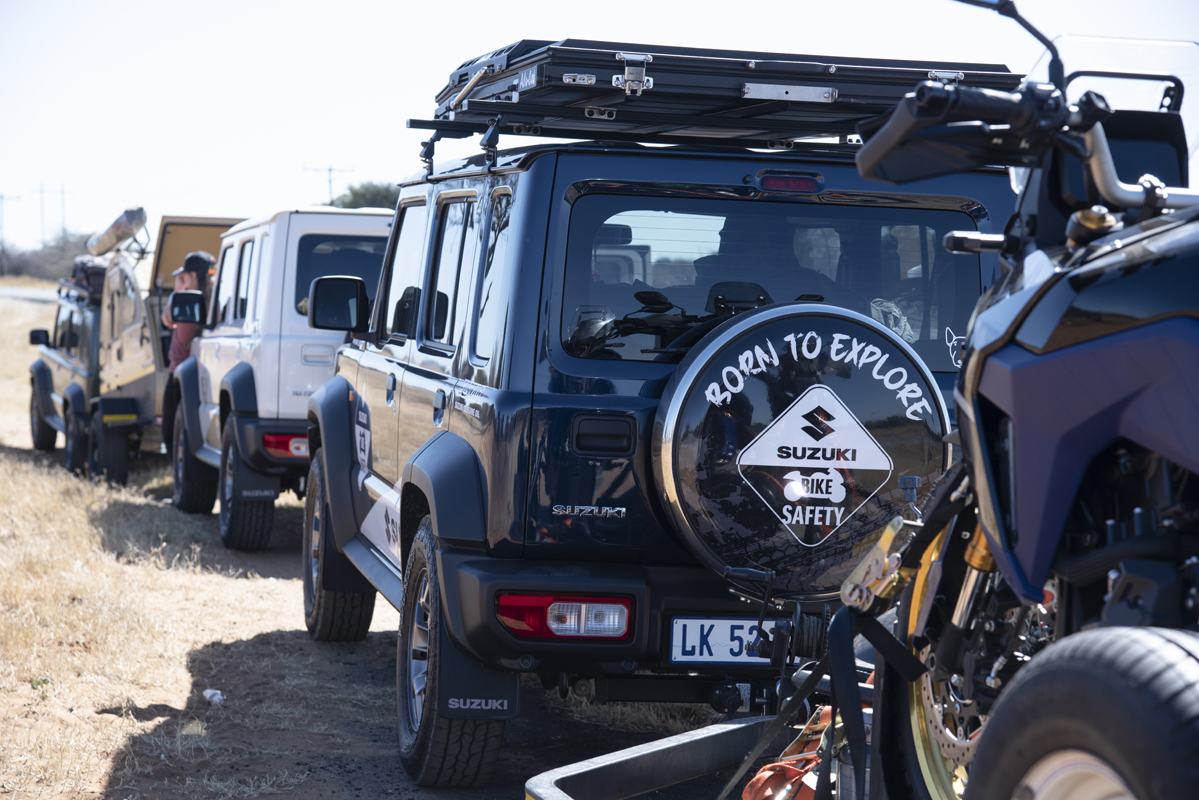
For the next three days, we set camp at the lodge while Anton, Riaan and Alti took part in the Bream Classic fishing comp on one of the Suzuki-powered Alu-Boats. Meredith and I had a few stopovers planned with the bikes and some errands to run for the rest. A definite must-visit if you are in the area is Tsodilo Hills, a site that is held sacred by the locals for its rock art (over 3500 rock paintings) that dates back around 800 to 1300 AD. The dirt road there is manageable but has a few deep sand spots that call for full throttle and you will see plenty of wildlife on the single track there.
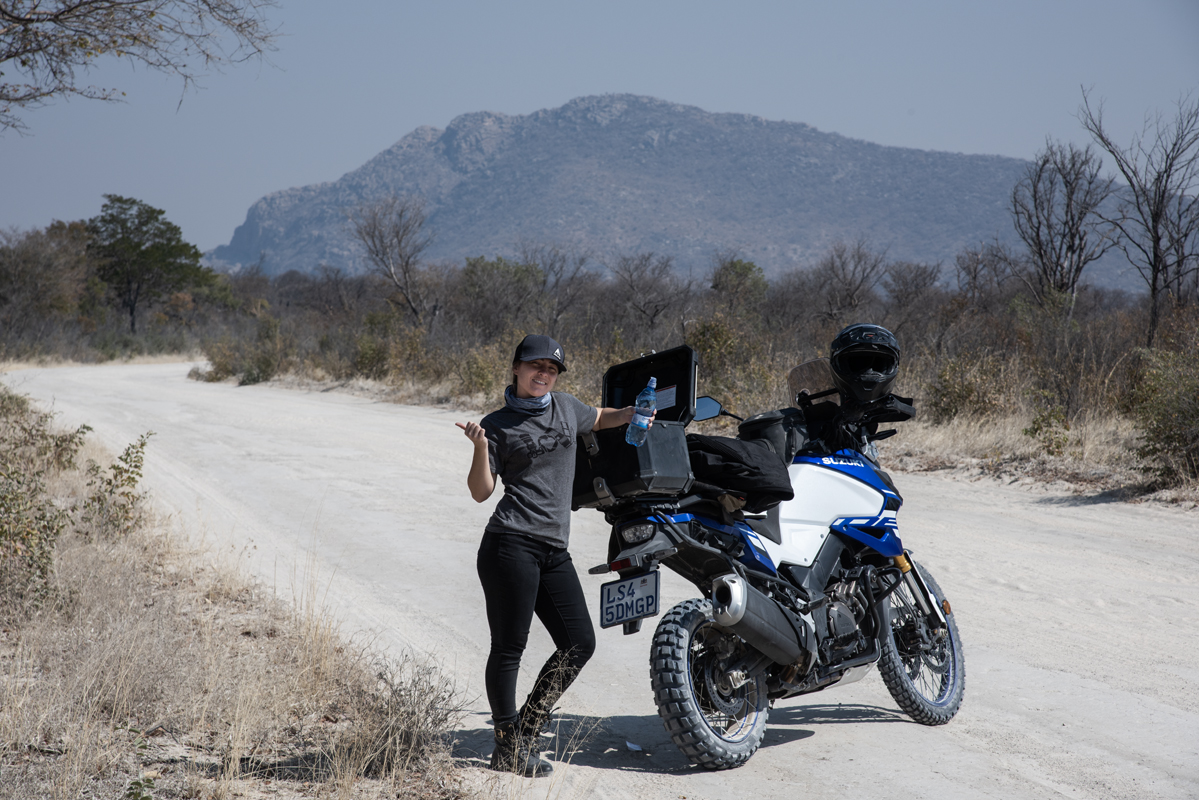
The last day of the Bream Classic saw Anton forfeit the comp so he could invite Meredith and me to join them on the boat for a full day’s fishing, as having us onboard would, in turn, get them disqualified. What an awesome experience that is fishing on the Okavango Delta. Braai onboard, animal viewing on the banks, the sound of hippos and crocodiles, smiles all around and hey, I didn’t catch any Bream but I caught a couple of decently sized Tigers throughout the day.
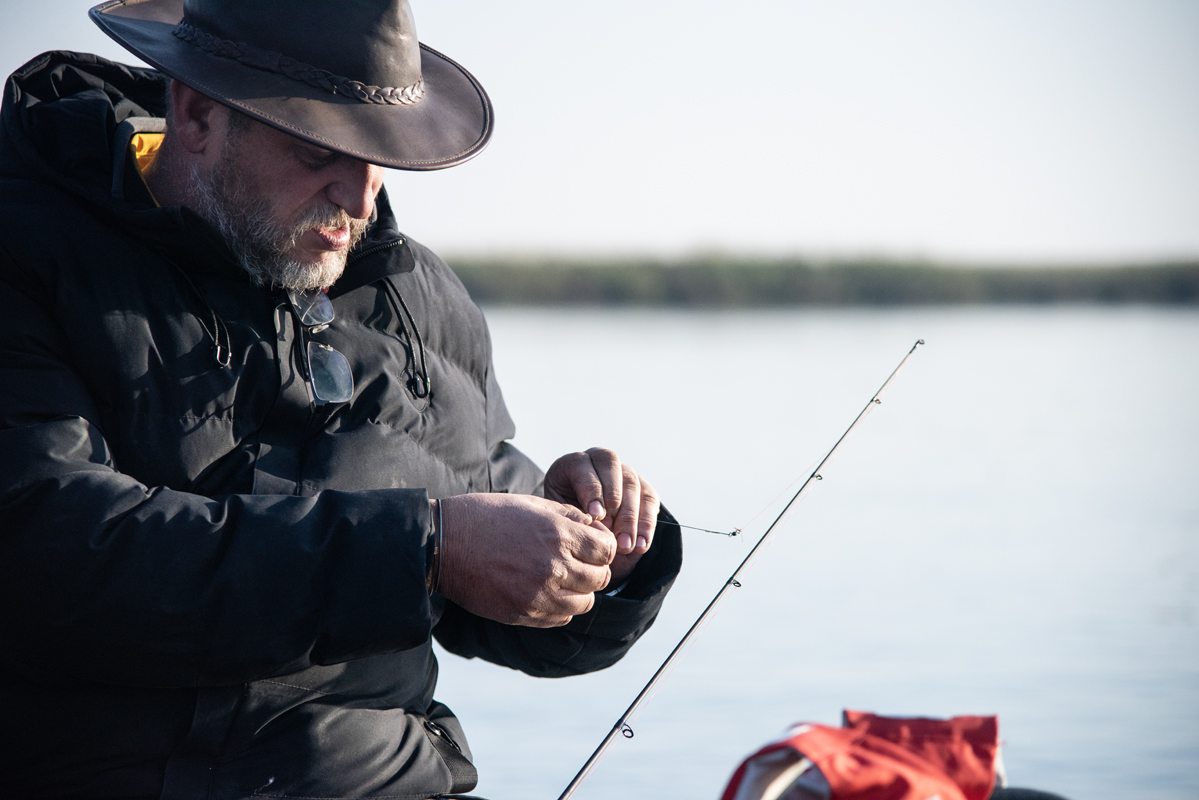
There’s nothing like the successful completion of a long, planned journey and we ended it on such a good note before heading back home. We got to experience 7 nights of camping of which two were wild, beautiful Kubo Island, some lovely people along the way and a full circle of Suzuki’s “Way Of Life”, from motorcycles, and 4x4s to marine. What trip!
I was seriously impressed by how these stock Jimnys and relatively affordable Micro-SUVs pulled off a proper off-the-beaten-path and long-haul overlanding trip. In my opinion, if it were just Meredith and myself, I would go for our rooftop tent setup and definitely go single bike trailer. This setup would lower fuel consumption, narrow the trailer axle width and prolong the longevity of the Jimny.
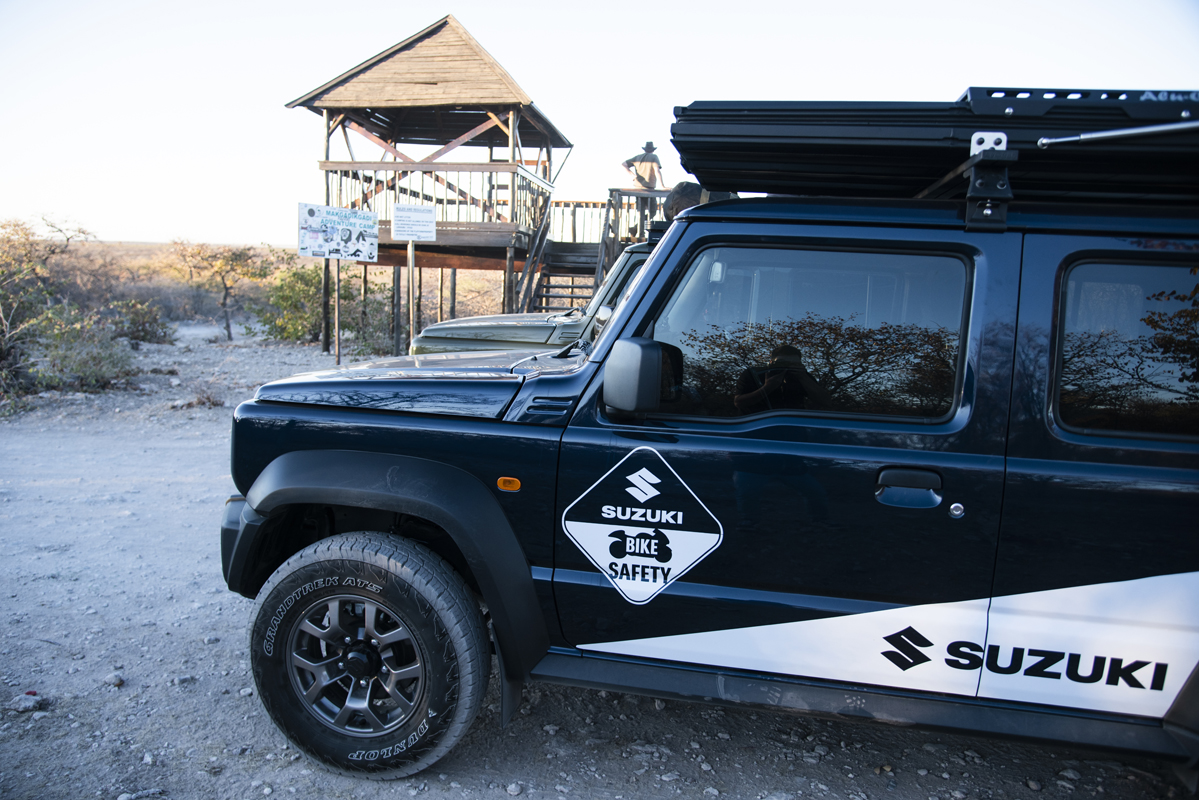
Although the Stroms were more of a tag-along on this trip, in typical Suzuki fashion they got the job done with just a simple Michelin Anakee Wild tyre upgrade, which hand over fist helped out majourly in the sand and loose gravel. The Suzuki V-Strom 800 DE was my go-to for solo rides as its lightweight and fast-spinning 776 cc 270° crank parallel twin engine made for such an engaging ride well its soft suspension made most of the terrain a magical carpet ride. The Suzuki V-Strom 1050DE made a great two-up gravel travel machine, the 1050 is just a reflection of how Suzuki has consistently evolved such a happy-go-lucky adventure motorcycle package.
As for you Jimny faithful and lovers of all things overlanding, I would encourage you to stretch your Jimnys legs and go on that bucket list adventure. The Jimny punches way above its weight and makes most adventures more attainable and that much more of a story to tell around the campfire. As a micro-overlander, the Jimny gets a 5-star rating from both Meredith and myself and you’ll probably see the both of us out on many more overlanding trips to come.





